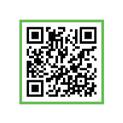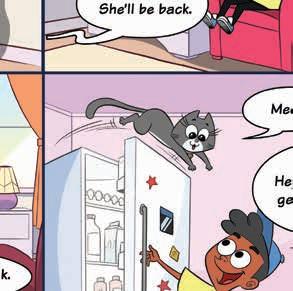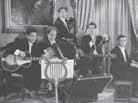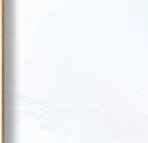NEW FRONTIERS






























Beginner - Upper Intermediate




Introduction
New Frontiers is an exciting six-level course from Compass Publishing. Using carefully balanced input and output activities, New Frontiers deftly navigates students through the core English skills. This series guides young-adult learners to meet functional English goals. It has integrated 21st century learning techniques written into its curriculum, which focus on communication, critical thinking, collaboration, and creativity.


Components for Students
Components for Teachers
guides with extra activities and information




an interactive e-book

Teacher’s Kit
vocabulary tests, comic book worksheets, and midterm and final examinations


an adaptive computer-based placement test







A bold, modern design with a clear focus on building CEFR competencies

Entertaining comics and animations




Dynamic unit structures that encourage student engagement

COURSE FEATURES






CEFR-based curriculum with aims set to CEFR descriptors
A 10-unit structure designed with connected themes and goals



21st century skills that focus on preparing students to communicate on the modern global stage
A mix of task-based learning and Content and Language Integrated Learning (CLIL) to meet the needs of every student
Book 1
Book 2
Book 3
ANIMATION & COMICS




Book 4
Book 5
Every unit includes an animated short. Students can practice what they learned in fun and interesting ways!

Book 6
Sample Comic 1 Sample Comic 1



























Sample Comic 2 Sample Comic 2





















Scope and Sequence
VOCABULARY GRAMMAR & STRUCTURES LISTENING

WE’RE
MY HOUSE, MY HOME
WHAT TIME IS IT?
TIME TO PLAY!
LOOKING GOOD!
Family Extended family Jobs & personal information





Personal pronouns
Present be verbs (a rmative)
Identify family members

WHAT DID YOU DO? SUN’S OUT!
1 2 3 4 5 6 7 8 9 10
Basic descriptions
School supplies School faculty School equipment School subjects
Rooms in a home Furniture Living spaces Parts of a house
Modes of transportation
Routine activities
Time of the day, week, month, and year
Hobbies Instruments Sports Games
WHAT’S FOR LUNCH? BUSY ON THE WEEKEND
Kinds of foods
for food
for ordering
Indoor chores Outdoor chores
Present be verbs (yes / no questions)
Present simple (negatives)
Present be verbs (Whquestions)
Basic prepositions of time and place
There is / are Basic prepositions of place
Understand who the people at school are
Understand when people talk about where things are in a house
Telling time
What time and when questions
Prepositions of time
Adverbs of frequency play vs do for sports
Present simple Time phrases
Present simple (has / have) Present continuous Adjectives joined with and
I would like Countable and uncountable nouns much / many
Present continuous can / can’t

Understand a schedule
Listen to people talk about their freetime activities

Understand a basic description of someone’s appearance

Understand likes and dislikes
Places around town Errands
Identify the chores people are doing
Past be verbs (was / were) Simple past Describe past events
a













Ask and answer personal questions
Talk about family members’ jobs
Write about family members
Introduction to vowel sounds (1) Your Family Tree
Talk about the things in your classroom
Describe the things you need for school

Write about what you need for class
Introduction to vowel sounds (2) Club Notice
Talk about what is in a house Read about homes around the world
Write a description of what’s in your house /ʃ/ vs /tʃ/ Dream House Builder
Talk about your routine Read about modes of transportation
Write a daily schedule /ə/ Your Daily Schedule
Have a conversation about hobbies
Read and respond to a simple text about hobbies
Read an email and write a reply /Ɵ/ and /ð/ Social Media Post
Ask and answer questions about what someone looks like
Learn about the clothes people wear in other countries
Describe your appearance in a message

/I/ vs /iː / Find the Thief!
Order food in a restaurant
Read about interesting street food
Write about the food you eat Plural sounds /s/, /z/, & /iz/ Healthy Eating Survey
Talk about outdoor chores and activities
Read about people in di erent time zones
Describe what people are doing
Expansion: /ə/ Helping Others
Talk about weekend activities Read about a fantastic weekend trip
Write about how a past experience made you feel
/dʒ/ vs /g/ Storytelling
Talk about what you do in di erent seasons
Learn about di erent weather conditions
Write a party invitation /n/ vs /ŋ/ Trip Planning

TIME TO PLAY! 5 Unit
C
D
E


WHAT YOU WILL DO IN THIS UNIT
A













Reading Read and respond to a simple text about hobbies

B Writing Read an email and write a reply
Listening Listen to people talk about their free-time activities
Speaking Have a conversation about hobbies
Project Write a social media post about your weekend


Look at the photo and answer the questions.

1. Where are they?






2. How do they feel?
3. Why do they feel like that?
4. What do you do in your free time?

BOOK 1
Vocabulary
1 Listen and number. 5-01

2 What are they talking about? Listen and write the word(s). 5-02
1. 2.
3.
4.


Grammar
3 Look at the chart and read the text.
always (100%) usually (75%) sometimes (20-50%) never (0%)











“I always wake up at 8:00 a.m. I usually eat breakfast in the kitchen, but sometimes I eat it in the living room. I never eat breakfast in the bathroom!”

5 Talk with a partner.





What do you always do in the morning?
4 Unscramble.















1. always exercise / I / morning. / in the


2. never go to / I / weekend. / on the / school
3. I / at 4:00 p.m. / home / sometimes get

4. usually have / I / lunch / at 1 p.m.

5. He / sometimes watches / in the / evening. / a movie



6. the morning. / never feel / tired / I / in
What do you never do in the evening?
What do you sometimes do in the afternoon?
What do you usually do after school?

6 Look at the pictures below. What are their hobbies? Write them under the pictures.
7 Read the texts and match them to the correct picture. Then circle all the adverbs of frequency in the reading.
A: Hello! My name is Sopa, and I’m from Thailand. In my free time, I play kabaddi. It’s a team sport from India. You try to touch members of the other team before they catch you. I always play kabaddi after school with my sister and friends. It’s difficult but fun and good exercise!






B: Hi, I’m Anya. I’m a student from Russia. But in my free time, my hobby is cosplay. It’s from Japan. The name is made from the words “costume” and “play.” What do I do? I usually watch a movie and see a character I like, and then I draw the character’s costume and make it. I love superhero characters the most.
C: I’m Oliver. I’m from Canada, and my hobby is collecting toy robots. On the weekend, I always go to toy stores to buy more. I sometimes make robots, too. Now I have over 200 robots! This is my favorite robot. My father and I made it two years ago. It can walk and talk!

Comprehension
8 Circle true or false.

1. Sopa is from India. true false



2. Anya draws a costume and then makes it. true false

3. Oliver buys and sometimes makes robots. true false
4. Sopa plays kabaddi alone. true false

5. Anya doesn’t like superheroes. true false

9 Talk with a partner.
1. Whose hobby is the most fun: Sopa’s, Anya’s, or Oliver’s? Why?




2. Which hobby is not fun? Why?
3. What is your hobby?
Listening B

Vocabulary
1 Listen and number. 5-04
Aim Listen to people talk about their free-time activities
cartoons
books comics basketball table tennis videos







2 Put the vocabulary words in the right list.
I play…


I read… video games






Focus
3 Talk with a partner.


I watch…
We use the verb do with activities and homework. We use play with sports, music, and games.
We use read with books, newspapers, and stories.

4 Talk with a partner. Ask the question. What do you usually do / play / read?

Partner 1

Partner 2
What do you do for fun?
I play video games.
do play read
piano video games guitar a newspaper5 Listen, circle, and write the hobby. Answers will vary. 5-05
1. He plays / does _____________________________.


2. They do / play _____________________________.
3. She plays / reads _____________________________.
4. I do / watch _____________________________.
5. He reads / watches _____________________________.
Listen Up
6 Listen and match the adverb of frequency to the activity. 5-06
1. always • • a. reads comics
2. never • • b. watches movies
3. sometimes • • c. plays tennis
4. usually • • d. reads a book
7 Listen and match the picture with the name. 5-07
8 Listen again. Fill in the blanks. 5-07

1. Megan loves surfing, and she __________________ goes to the beach in the morning.

2. Ruby __________________ meets and plays with her band at 6:00 in the evening.
3. Theo __________________ goes to bed at 11 p.m.
9 Talk with a partner.

What do you never play?

What do you never read?
What do you never do?
Megan Ruby TheoAim Have a conversation about hobbies





Vocabulary
1 Listen and number. 5-08
Grammar
2 Look at the table. Talk with a partner.
We use simple present tense for actions that we do regularly: every week, every day, or usually.

Questions Answers
What do you / they do? I / They play soccer.
What does he / she do? He / She plays soccer.
Do you / they play tennis? Yes, I / they play tennis. Does he / she play tennis? No, he / she doesn’t play tennis.


3 Unscramble.



1. Do you / comic / read / books?
2. do you do / What / free time? / in your


3. play / Do / basketball? / you

4. What does / do / on the weekend? / best friend / your

Expressions
Asking about hobbies
4 Talk with a partner.
·What do you do in your free time?
·What is your hobby?
·What do you like to do?
Speak Up
Follow-up Questions
·Why do you like it?
·How often do you do that?
5 Talk with a partner. Ask them questions using “Do you...?” Write their answers.




Do you play video games? Yes, I usually play video games / Yes, I do.
When do you play video games? I usually play them after school.
Why do you play video games?
Do you (usually)…
Because it’s fun.
Name Yes No Extra information (Where? When? Why?) play video games? Jonathan At home. After school. It’s fun! play table tennis? skateboard? dance? watch movies? go shopping? run? play piano? chat online?

Pronunciation
6 Listen and put a check mark ( ) on the sound. 5-09
three /Ɵ/ the /ð/ 1. brother 2. Thursday
Vocabulary
1 Listen and number. 5-10

2 Listen and write the activities from the vocabulary that you hear. 5-11
3 Read the email.
From anja06@online.com






I’m Anya. How are you? I’m a little tired because it’s 11 p.m. here!
I’m doing a project about everyday life in your country. Please answer these questions:

• When do you eat breakfast?
• What is your hobby?
• What does your brother / sister do in his / her free time?
• Where is your favorite place to play with friends?


Thanks, Anya

4 Write a reply to Anya. Answer all of her questions.
Send
5 Use the sentence parts to make yes / no questions. Then talk with a partner. yes no
1. in the park / after school / play soccer ___________________________________________________________?
2. usually / on the weekend / ride your bike ___________________________________________________________?
3. play tennis / on weekdays ___________________________________________________________?

4. take photos / sometimes
5. the park / go to
6. have / on the weekend / free time
7. free time / have / on weekdays ___________________________________________________________?
Project E
Aim Write a social media post about your weekend



1 Match the word with the picture.

busy sad passport fun

2 Look at the pictures. What do you think the video will be about? Talk with a partner.

3 Watch the video. Answer the questions. Video 5

1. For Pierre, living in an airport is sad / fun / busy / bad

2. At night, where does Pierre go to bed? _________________________________________

3. Where does he take a shower? _________________________________________
4 Watch again. Fill in the blanks. Video 5
1. At 9 a.m., Pierre _________________________.
2. In the afternoon, Pierre _________________________.
3. In the afternoon, Pierre sometimes _________________________.
4. In the evening, he _________________________.



5 Talk with a partner. Do you think living in an airport is fun?




6 Look at the table. Listen and repeat. 5-12
After school, I play tennis. I play tennis after school. Before school, I have breakfast. I have breakfast before school.
7 Listen and circle what happened first. 5-13
1. a. play basketball b. do homework
2. a. play video games b. eat dinner
3. a. skateboard b. school
4. a. listen to music b. school
5. a. do homework b. eat dinner
6. a. take photos b. eat lunch
8 Complete the sentences with information about you.
1. Before school, I always
2. After school, I sometimes
9 Get into groups. Discuss the following questions.
• What makes a good social media post?

• What do you usually post about?



10 Plan a post about an exciting weekend activity. Talk about your post with a group. Use the prompts to ask questions.
Where do you …?
When do you …?
Why do you ?
How often do you …?




I love Saturday! On Saturday afternoons, I get home from school, and then I meet with my friends in the park. We always listen to music and play games. Sometimes I take photos, play tennis, or go surfing. We have so much fun, and I feel so happy!
Scope and Sequence
VOCABULARY GRAMMAR & STRUCTURES LISTENING
HELLO!
LET’S HAVE SOME FUN!
WHERE TO?
WHERE CAN I FIND IT?
1 5
2 6
3 7 9



I DON’T FEEL SO WELL AROUND SCHOOL ON TOUR LIFE’S AN ADVENTURE I LOVE NATURE! LET’S GO OUT!
4 8 10
Personal information Introductions Jobs The theater
Hobbies and pastimes Talents Skills
Errands Places around town Making arrangements Directions
Locations around the house Neighborhood locations Describing objects Personal items
Health problems The body Health checkup
School events Helping out School facilities School sta
Travel At a restaurant
Wh-questions

Stative verbs
Possessive adjectives
Expressions of frequency want (to) and would like (to) Object pronouns
need to and have got to Prepositions of place and movement
Prepositions of place
Singular and plural possessive nouns
Modal verb should (not) for suggestions
Modal verbs may and might for possibility
Quantifiers
Present continuous with future meaning
Modal verbs can and could for polite requests
Past time expressions
Simple past Past continuous
Understand questions about personal information
Ask and answer questions about fun activities
Listen to people talk about their errands


Listen to people talk about where things can be found

Listen to people talk about being sick

Learn about school events and activities
Understand a travel story
Adventure sports
Describing experiences Animals Extreme activities
Present perfect vs Past simple Past time clauses
Listen to and understand a story about an adventure Animals Natural environment
Adjective comparatives Superlatives


Understand talks about animals
Making suggestions with let’s will vs going to because and because of
Listen to people inviting others out for fun
Introduce someone important
Read about a team Write interview questions Expansion: /ə/ A Fine Business Plan
Talk about fun activities
Read about child prodigies
Write an invitation to a friend to join you for an activity
/ Making Weekend Plans
Talk about errands and where to do them
Read about a special place and how to get there
Give written directions
/ Make Detailed Instructions
Ask and answer questions to describe an object
Talk about being sick and give advice
Read about famous works of art
Write a flyer describing a lost object
Design a Machine
Read about childhood illnesses
Write about being sick or hurt
vs /
/ Survey about Experiences
Make polite requests for people to do tasks
Read about special school events
Make an announcement for an upcoming special event
Tonic stress Event Proposal



Ask and answer questions about past events
Ask and answer questions about exciting experiences
Talk about nature
Read about a famous traveler Review a place you visited Past tense -ed, /t/, /d/, and /əd/ A Thief on the Orient Express
Read adventure trip advertisements
Add to an online discussion about adventure activities
/b/ vs /v/ Adventure Planner
Read about amazing things in nature
Write about things in nature /aʊ/ Posters for Endangered Animals
Take turns inviting a partner to do something
Read about an interesting place to have fun
Write about your plans for your next vacation
vs
Theme Park Tycoon
WHERE CAN I FIND IT?
B
C

D
WHAT YOU WILL DO IN THIS UNIT
A













Listening Listen to people talk about where things can be found
Speaking Ask and answer questions to describe an object

Reading Read about famous works of art
Writing Write a flyer describing a lost object
Project Design a machine to do errands E

BOOK 2
Look at the photo and answer the questions.

1. What are the girls doing in the picture?


2. Is it easy to find what you want at a supermarket?

3. Have you ever lost something important? What was it?


4. Describe a time you lost and found something important.


A





























Listening
Vocabulary


1 Listen and number. 4-01
Aim Listen to people talk about where things can be found
2 Where are the items? Listen and write the vocabulary word. 4-02
3 Look at the house. Listen and number the places.


4 Talk with a partner.

Where are my



They’re on top of the table.
Do you know where the cup is?
5 Listen and fill in the blanks. 4-04

1. The book is ___________________ the television.

2. The ___________________ is by the stairs.












3. The ___________________ is over there.












Yes, it’s by the plant. (No, I don’t.)
4. The cheese is ___________________ the entrance.






Listen Up
6 Where are the speakers? Listen and number. 4-05
7 Listen again. Circle the words you hear. 4-05
at a museum in a classroom in a garage at a supermarket upstairs downstairs cupboard shelf garage gate hall basement entrance exit







8 Listen again. Circle and fill in the blanks. 4-05
Challenge
9 Listen and answer the questions. 4-06
1. What is the boy talking about?





a. eating a snack
c. finding the garage key

b. watching TV
d. cleaning the refrigerator
2. What does the boy find under the couch?
a. a key b. a ball
3. Circle true or false


















c. a toy d. a snack
a. The boy looks on top of the refrigerator. true false
b. The key is under the table in the dining room. true false
c. The boy looks in the bathroom. true false
B Speaking
Vocabulary
1 Listen and number. 4-07
2 Fill in the blanks with the correct vocabulary word.

1. A feather is _______________ and light.

2. _______________ comes from trees.

3. Mail it in a(n) _______________ box.







4. The sun isn’t square. It’s _______________.



5. The store put our things in a(n) _______________ bag.


6. _______________ comes from the ground.
7. A rock is _______________ and heavy.




8. An elephant is not light. It’s _______________.

Focus
3 Talk in small groups. Ask and answer questions using the vocabulary.
What does a lemon look like?
It’s yellow / round.
Name something that is made of wood. This chair. / My house is made of wood
Expressions
Describing objects
4 Listen and repeat. 4-08
What does an apple look like? It’s round and red.
What is the chair made of? It’s made of wood

Is it light or heavy? It’s heavy
NOTE
We usually describe the shape before the color. So, use round and red instead of red and round
5 Use the words from the box to make questions. Talk with a partner. a desk a chair a table an eraser a pencil a ruler a clock a book
Speak Up
6 Talk with a partner. Choose an item in the picture. Your partner will ask questions about the items in the room until they guess the item you chose. Take turns.
Ex.
Is it round?
Is it orange and yellow?


Yes, it is. No, it isn’t.



7 Talk with a partner. Describe the pictures and guess what they are.


Vocabulary


1 Listen and repeat. 4-09
2 Fill in the blanks with the best vocabulary word.



1. We washed our __________________ dog.

2. A zebra is __________________.





















3. The fastest runner got a(n) __________________ medal.


4. A cheetah is __________________.

5. The beach has beautiful __________________ water.





6. We moved to a(n) __________________ house.





7. I wear sunglasses on __________________ and sunny days.

8. My watch is __________________, so I don’t know what time it is.
Pre-reading
3 Talk with a partner or as a group. Ask and answer questions about the items.
What does it look like?



It’s gold and round.


THE HIRSHHORN MUSEUM AND SCULPTURE GARDEN
NOTE



A sculpture is a work of art that is three dimensional.


The Smithsonian Museums in Washington, DC, have many important objects. One interesting museum is the Hirshhorn. It is a museum of modern art and has a large sculpture garden. You can enjoy many works of art for free while walking through the sculpture garden.
YAYOI KUSAMA / PUMPKIN (2016)
The artist Yayoi Kusama loves pumpkins. She has made all di erent types of pumpkins, including glass, wooden, and metal pumpkins. Here, she has a big, round, spotted pumpkin. Doesn’t it look delicious?

ARNALDO POMODORO / SPHERE WITHIN SPHERE, SPHERE NO.6 (1965)

Pomodoro made many metal balls. Today, you can nd these round sculptures all over the world. If you visit Hakone, Rome, Dublin, New York, or Washington, DC, be sure to look for one of these balls.
Comprehension
5 Circle true or false.
This work of art shows the power of nature. This rock is very heavy. The metal car is not strong enough for the hard rock. What do you think this sculpture means?

6 Talk with a partner.



1. The pumpkin sculpture is spotted. true false
2. The rock on the car is light. true false







3. The sphere is made of metal. true false


4. The Hirshhorn is a history museum. true false




1. Have you seen an interesting work of art?
2. What did it look like?
3. Which work of art is your favorite?
7 Sketch your favorite work of art here and write a description.







Vocabulary
1 Listen and number. 4-11
key



earring bracelet ring necklace



purse

money wallet watch scarf





2 Write the vocabulary words under the correct picture.
Pronunciation

3 Listen and repeat. 4-12
/Ʊ/ /uː/ book choose



4 Listen and put a check mark ( ) on the sound. 4-13



Expressions
Talking about price
5 Talk with a partner.

What’s the price like?
What’s the price of this necklace?
What’s the cost of this necklace?

It’s free. It’s cheap. It’s on sale. It’s expensive.
Can I get a discount?
Sure, you can. / No, sorry.





6 Use the words and phrases from the box to make questions. Talk with a partner.
It’s $150. a ring a necklace a suit a car a toy robot a bike a glass of water a bracelet
7 Read and answer the questions.
Missing!
I last saw my ring at this café. It is silver. There is a round, clear stone on it. It’s very expensive. Do you know where it is? Call me at 555-2321.




1. What did Mary lose?

Lost Cat!
My cat is missing. I last saw her on this street. She is striped. Her stripes are black and brown. Her name is Mango. Have you seen her? Call me at 555-6546 with information.
2. Was Mary’s lost item cheap? ____________________________________________

3. What does Jack’s cat look like? ____________________________________________
4. What is his cat’s name? ____________________________________________
Writing
8 Make a poster for a “lost” item you own on a separate piece of paper. Use the space below to write a description. Share your poster with the class.
1 Look at the pictures. What do you think the video will be about? Talk with a partner.


2 Watch the video. Number the pictures in order. Video 4


3 Watch again. Circle the words you hear.
4 Watch again. Match the question with the answer. Video 4
1. What does the ring look like? • • a. It’s down the hall.
2. What is the bracelet made of? • • b. It’s silver.
3. Where is the office? • • c. It’s made of wood.
5 Circle the correct answer.
1. The necklace is _____________.
2. The ring is round and _____________.


3. The last thing the thief took was a _____________.
a. gold b. silver c. wood
a. light b. square c. heavy
a. bracelet b. necklace c. ring
4. Philip is a _____________. a. police officer b. guard c. manager








6 Look at the table.
There is one car.
Singular possessive
The windows of the car are dirty. → The car’s windows are dirty.
Plural possessive
There are two cars.
The windows of the cars are dirty. → The cars’ windows are dirty.
7 Circle the correct word.
1. There is one house. The house’s / houses’ windows are broken.
2. Alice’s / Alices’ book is lost.
3. There are two bugs. The bug’s / bugs’ legs are long.
4. There is one dog. The dog’s / dogs’ bowl is silver.
5. Steve’s / Steves’ left leg is broken.
6. There are eight birds. The bird’s / birds’ nests are in the trees.
8 Fill in the blank with the possessive form of the given word.
1. (Harry) ___________________ hands are dirty.
2. There are two girls. The (girls) ___________________ shirts are pink.
3. There are ten students. The (students) ___________________ homework is not finished.
4. There is one horse. The (horse) ___________________ legs are long.
5. There are two dogs. The (dogs) ___________________ tails are white.
6. There is one woman. The (woman) ___________________ ring is silver.
Century Skills
Design a Machine
9 Design a machine to make your life easier. Sketch your new machine. Don’t let your partner see your machine.
10 Describe your machine to your partner. Have your partner draw it on a separate sheet of paper. Compare your drawing with your partner’s.
Scope and Sequence
ALL ABOUT ME FASHION FORWARD
THAT’S ENTERTAINMENT! IN THE FUTURE
WHAT’S COOKING? KNOW THE RULES
LET’S GO SHOPPING AFTER SCHOOL DISCOVERY I CAN’T DECIDE!
1 2 3 4 5 6 7 8 9 10





Interests Lifestyles Profiles
Clothes Fashion Outfits
Types of music TV & movie genres Kinds of video games Feelings
Inventions Tech industry Predictions Technology
Food Tastes Cooking and eating
Safety precautions Permission Rules and consequences
Stores Shopping Comparing items
School clubs & activities
Social problems Global issues
Discoveries Inventions Gadgets & technology
Decisions Recommendations Descriptions

Can you and do you feel like Present simple vs present continuous
used to and would Conjunctions and linkers Simple past vs present perfect Present continuous
so and such -ed and -ing adjectives
Listen to descriptions of people’s lifestyles

Listen to discussions about changing tastes in fashion

Listen to people talk about their tastes in music

Future simple vs future continuous Future continuous for predictions
Understand job descriptions of people in the tech industry
would rather and would prefer to Quantifiers



Listen to people talk about what they want to eat
may for permission Conditionals (zero vs first) must and must not
need to, would like to, and want to Comparatives (1) Verbs followed by to-infinitives

Tag questions
Direct and indirect reported speech
Comparatives (2) Definite vs indefinite articles
Understand rules and consequences
Understand people talking about shopping
Understand conversations about extracurricular activities
Listen to comparisons of the past and present
Superlative adjectives Indefinite pronouns Relative pronouns
Understand gift recommendations
Describe something you like to do
Read about people’s interests
Write personal profiles Make a Seating Arrangement
Talk about things you used to like
Learn about fashion trends in the past
Write a description of someone’s outfit Predicting Future Trends
Talk about favorite movies and TV shows
Read and respond to a blog post about video games
Describe a movie or TV show Space Capsule
Make predictions about the future
Learn about important inventions
Write about new and changing technology App Designer
Ask about things on a menu
Understand a recipe
Write about food from your country Iron Chefs
Ask for and respond to requests for permission
Understand safety precautions
Write a letter asking for permission Logic Problems
Compare items
Read about traditional markets
Ask for and give shopping advice Sales Pitches
Report what others have said
Read about students trying to make a change
Write a detailed message Debate Club
Talk about the way technology used to be
Read about important discoveries
Write about amazing discoveries Pros vs Cons
Describe things you don’t know the word for



Read about decision-making
Write a message asking for help Put on a Play
3
THAT’S ENTERTAINMENT!
B
C
D
WHAT YOU WILL DO IN THIS UNIT
A
















Listening Listen to people talk about their tastes in music
Speaking Talk about favorite movies and TV shows
Reading Read and respond to a blog post about video games

Writing Describe a movie or TV show
Project Choose cultural items for a space capsule E

Look at the photo and answer the questions.



1. Where are they?


2. What are they doing?
3. How do they feel?
4. Do you enjoy video games? Why or why not?



BOOK 3

Vocabulary
1 Listen and number. 3-01
NOTE
2 Listen and write the genre of music you think is being played. Talk with a partner. 3-02


A genre is a type of art, writing, etc. in a particular style. 1.





Expressions
3 Talk with a partner.


So, what kind of music do you like? Really? Why?
Listen Up
I like rock music.
NOTE
It is exciting / interesting / boring I am excited / interested / bored
It’s so exciting . When I listen to rock music, I feel excited .


4 Look at the pictures in 6 . Guess what kind of music they like.

5 Listen and put a check mark ( ) next to the words you hear. 3-03
band interesting folk rap




6 Listen again. Fill in the table.
7 Listen and fill in the table with the man’s five favorite songs.

8 Interview your partner about his/her favorite songs. Fill in the table with your partner’s information.


GENRE SONG TITLE (AND ARTIST, OPTIONAL) WHY THEY LIKE















B Speaking
Vocabulary
1 Listen and number. 3-05
Aim Talk about favorite movies and TV shows








2 Talk with a partner. Change the underlined parts to make the conversation true for you.


A: What kinds of movies do you like?
B: I like fantasy and action movies because they’re exciting and interesting
A: What kinds of movies do you hate?


B: I hate drama and romance movies. They’re so boring!
A: What movie do you want to see next?
B: I want to see Time Crisis 2. It’s an action movie

Grammar



3 Look at the table. Then listen and repeat. 3-06
so and such
Both so and such are used to make an adjective stronger. so with only an adjective such with an adjective and noun







Ex. That movie was so amazing! Ex. That was such an amazing movie!


1. This is such a scary horror movie! This horror movie
2. That song was so beautiful! That was
3. He is such a handsome actor! The actor
4. The comedian is so funny. She
5. Those boys are so friendly. They
6. This is such a sad movie. This
Focus
5 Talk with a partner.
What is your favorite movie?
I think my favorite movie is Avatar. It’s a science fiction movie. It’s so amazing!
Challenge
What’s your favorite TV show?
NOTE
I think it’s Gag Central. It’s a comedy, and it’s such a funny show!
6 Get in groups. Use the above dialogue to talk to people in your group.




Question Partner 1 Partner 2
favorite movie?
favorite TV show?
favorite song?
favorite game?
7 Listen and repeat. 3-07
Linking ending consonants with vowels
It’s such-an-amazing movie!
It’s-a really-old TV show.
He’s my favorite-actor.
It’s-an-American TV show.
Partner 3
8 Draw lines to link the words where the ending consonants link with the vowel at the beginning of the next word.
1. I think Peter Taylor is a really great actor.
2. Avatar is such a great movie.
3. Dragon King II is an amazing game.
Reading C
Vocabulary
Aim Read and respond to a blog post about video games

1 Write the word(s) under the correct picture.


fighting racing puzzle role-playing


first-person shooter adventure side scrolling online






2 Complete the sentences. Then talk with a partner. Does your partner agree or disagree? Why?
I like ___________ games because ____ _______________________.





Pre-reading
I hate ___________ games because ___ ________________________.

Talk with a partner about the last game he or she played.

How many stars would he or she give it? Why?




NOTE 5 stars = best


0 stars = worst







 1.
5.
3.
7.
2.
6.
4.
8.
1.
5.
3.
7.
2.
6.
4.
8.
THREE NEW GAMES THIS WEEK!

First up is a new game from ImagineLab. The game is called Lock & Load. It’s an FPS (first-person shooter), and it’s really exciting. You can choose one of three shooters and choose clothes for the shooter. There are so many maps to play! I often think that FPS games are boring, but I played this one for six hours and didn’t get bored!
Second is Dragon King II. This is a new MMORPG (massively multiplayer online role-playing game) from SX Design. It is a newer version of 2010’s Dragon King, and this one has new characters and places. The game is well designed. It’s easy to join other players while you are playing, but the game is very difficult. After two hours of playing, I was bored and tired.
Please leave a comment below.
Finally, we have Grand-Prix 3: Euro-Tour. It’s a new racing game, and it’s such a fast and exciting game! You can race your car in ten different European cities. The graphics are so good! It feels like you’re traveling around Europe. It’s easy to play at first, but gets challenging later. It’s always interesting, though. Buy this game. It’s AWESOME!
Jestur6378: Yeah, I agree that Lock & Load is really interesting. But Grand-Prix 3 is a terrible game, and it was so expensive!




Ace98: True, Grand-Prix 3 isn’t good, but almost all game genres are terrible. The only good games are PUZZLE GAMES.
Online_User:





Comprehension
5 Complete the summary. Circle the answers and fill in the blanks. This is a(n) 1. email / blog post / poem about new 2. computers / movies / games. The blogger reviews
3. two / three / five items. Of the three games, the blogger thinks 4. __________________ is best, 5. __________________ is second best, and 6. __________________ is worst.
6 Circle true or false.

1. The blogger thinks all three games were great. true false
2. He thinks that FPS games are usually boring. true false

3. Dragon King II is designed for one player. true false

4. The blogger thinks Grand-Prix 3 is not cheap. true false

7 Do you agree with Ace98’s comment? In the space above, write a reply.





Vocabulary
1 Listen and repeat. 3-09
2 Complete the sentences with information that is true for you.

Ex. I feel bored when I listen to jazz music. I feel interested when I read a history book.

1. I feel bored when _______________________________________________________.

2. I feel interested when ____________________________________________________.

3. I feel confused when _____________________________________________________.








4. I feel annoyed when _____________________________________________________.

5. I feel entertained when ______________________________ ______.








6. I feel embarrassed when _________________________________________________.
Grammar NOTE

3 Look at the table.
Some adjectives have two forms, with di erent meanings. For example, scared means the subject is afraid, while scary means that the subject has frightening qualities.





-ed
and

We use adjectives ending in -ed to describe feelings and emotions—how someone feels.

Ex. I feel bored. / I am bored. He feels excited.
-ing adjectives

We use adjectives ending in -ing to describe the quality of a thing or person—the effect it has on someone.
Ex. The movie is boring. The party was exciting.
4




Fill in the blanks with the correct form of the given words.
1. When I heard that I failed the test, I was __________________ (shock).
2. My younger brother is so __________________ (annoy). He’s always shouting and hitting me.
3. I hate singing on stage. It’s really __________________ (embarrass).
4. That man talked about himself for an hour! He’s so __________________ (bore).
5. I hate puzzle games. Whenever I play them, I feel very __________________ (bore).

6. I love history class. I think it’s such an __________________ (interest) subject.
Focus
5 Talk with a partner.
Jon23
What kinds of TV shows do you like?
Jon23
Kaz235
I love game shows, and I quite like documentaries.
How about movies?
Kaz235
Well, I love comedy movies, but I really hate horror movies. They’re too scary for me, so I hide behind the sofa!
6 Fill in the blanks with information that is true for you.
Jon23: What kinds of movies do you like?
NOTE
Use and, but, and so to join two ideas or parts of a sentence.
User95: I __________________________________ and __________________________________.
Jon23: What kinds of TV shows do you like?
User95: I __________________________________ but __________________________________.
Jon23: What kinds of games do you enjoy?
User95: I __________________________________ so __________________________________.


Write a description of a recent movie or TV show. Use the prompts






____________________ is a new ____________________ about ____________________.
The main character is a(n) ____________________ ____________________ who


____________________ in __________________.
It is a very ____________________ and ____________________ story!
The ending is so ____________________.
Project E

Video
Aim Choose cultural items for a space capsule


1 Match the picture with the word.
radio

2 Fill in the blanks with words from above.
1. Our __________________ is the Milky Way, and the next nearest one is Andromeda.



2. I love all kinds of __________________ but especially art and music.
3. Turn on the __________________ so we can hear some music.
4. I can store all my files on my __________________ stick.

5. I will put it in a(n) __________________ and send it out into space.



6. There were 7.65 billion __________________ living on Earth in 2018.
3 Look at the pictures. What do you think the video will be about? Talk with a partner. Video 3


4 Watch again. Circle true or false. Video 3



1. The aliens want to learn about human culture. true false

2. The aliens don’t like rock music. true false

3. The aliens think dance music is good because it’s loud. true false
4. The aliens watched a scary movie. true false

5 Watch again. Match the phrases. Video 3
1. It’s called “music.”
2. It’s also loud,

3. It’s not in the book,
•
• so I don’t know.
•
• Humans really like it.
•
• but it’s exciting.
 USB culture galaxy capsule humans
USB culture galaxy capsule humans
6 Circle the error in each sentence and write the correct sentence.
1. Wow! This music is so excited. I love it!
2. I don’t like this horror movie. It’s too scaring for me.
3. That is so a good song.
4. He doesn’t enjoy history class, so he feels boring right now.
5. I think dance music is such great.
6. It’s such an excited story.
Century Skills
Space Capsule
Collaboration Critical Thinking
7 NASA is sending a spacecraft to another galaxy. In the spacecraft, there will be a USB memory stick with six things on it. These things should show aliens what human culture is like.
Choose 6 cultural items to include (e.g., songs, paintings, movies, games, TV shows, etc.). Write a sentence describing each item and why you chose it.
8 Talk with a group. Decide on a final list of six items. Then give a group presentation about the items you chose and why. Vote on which group has the best list.
Scope and Sequence
A NEW SCHOOL YEAR
1
HELP! I HAVE A PROBLEM! MAKING PLANS
Education
Experiences abroad
Emotions
Vacation
THAT’S A CAREER!
2 3 4
PROBLEMS AROUND THE HOUSE
Difficulties & hardships
Negative emotions

Advice & excuses
Plans
Invitations


Celebrations & events
Venues & attractions
Jobs & careers
Training & education Goals
Present perfect continuous tense
Present perfect continuous tense vs present perfect simple tense
Phrasals with make

Relative clause with when Past perfect tense
Simple past tense vs past perfect simple tense
Past perfect tense and past perfect continuous tense
Phrasals with turn
Simple future tense (will / going to) for future plans
Future continuous tense
Adverbs of certainty
Declining invitations
Future perfect simple tense (affirmative / negative statements)
Modals for ability
Will and going to for prediction
Expressions for making predictions
Listen to conversations about what people have been doing
Listen to everyday problems and their solutions
Listen to people making plans
Listen to people talk about future career plans
OUR PLANET, OUR HOME
WE LOVE SPORTS! UNDERSTANDING CULTURES
A HELPING HAND
5 6 7 8 9 10





Repairs Homes
Green technology
Science
Conservation
Nature Environment
Sports

Hobbies
Interests
Sports jargon
Culture
Travel & travel experiences
Communication
Social issues
Law & crime
Civil service
WHAT COULD HAVE BEEN DIFFERENT?
Passive voice simple
Passive voice in di erent tenses
Reflexive pronouns
Causatives with help
Phrasals with run
Reported speech (statements)

Reported speech (questions)



Question tags
Too and enough intensifiers
Gerunds vs infinitives
Comparatives & superlatives
Stative verbs
Expressions to show degrees of interest
Modals of obligation and prohibition
Adverb clauses for time
Phrasal verbs with hang
Present perfect tense vs Simple past tense
Type 2 conditionals
Conjunctive adverbs
Expressions to show negative results
Wish statements
Type 3 conditionals
Phrases to express goals and aims
Used to / Would to talk about past action
Listen to people talk about problems around the house
Listen to talks about the environment
Listen to people talk about their interests
Listen to talks about problems when traveling
Listen to talks about di erent social issues
Listen to people talk about things they could have done di erently
Talk about things you have done recently



Read about di erent education systems
Write to a friend or family member about your vacation
Scrapbook
Describe solutions to problems
Read about difficult situations
Write about a problem and how it was solved
Survive!
O er and refuse invitations and give reasons
Read about an upcoming festival
Write an invitation for an event
Cultural Festival
Talk about how you’re preparing for the future
Read about job market concerns
Write a cover letter
Career Map
Talk about problems around the house
Read about smart homes
Write a post explaining a problem School Renovations
Report facts about the environment
Read an interview with an environmental expert
Write a summary of what a speaker has said
Environmental Reporter
Describe hobbies you like and why you like them
Read about sports rivalries
Write a sports report Sports Draft
Talk about rules and taboos in your culture
Read about rules and taboos in di erent cultures
Give advice to a friend traveling to your country
You Make the Rules
Talk about important social issues
Read about a social issue and a potential solution
Summarize two di erent opinions
Model Debate
Talk about how you could have done things di erently
Read about events that could have been avoided
Write about something you wish you had done di erently
How It Would Have Been















Look at the photo and answer the questions.








1. Where are the women in this picture?
2. How do you think the woman on the left feels? Why?
3. How would you feel in this situation?
4. What kind of jobs are you interested in?


Vocabulary



























1





Pre-reading

3 Read and complete the activity. Then talk as a class.

Activity: Automation is the use of machinery or computers to complete work without needing human action. Many jobs or tasks are performed by machines. Look at the different kinds of work. On a piece of paper, list parts of the work that can be done by a machine. Do research online if needed.




















Job Market Concerns Automation
According to some researchers, forty percent of jobs will have been automated by 2050. Sounds bad? It gets worse. This prediction is one of the more optimistic ones. Other researchers claim that twenty percent of all jobs that exist today will have been automated within the next fi ve years. That’s a lot of jobs!
Jobs most at risk of being automated are those that require repetitive work. This means most manufacturing jobs. Service workers are also at risk. Cashiers, deliverymen, and customer service representatives are all starting to be replaced by AI.



Those with an advanced education are less at risk of being replaced. However, this doesn’t mean they’re not at any risk. Of the jobs replaced by 2050, many will have been lost in “white-collar” industries. AI is already able to do many tasks in advanced career fi elds such as healthcare and law. Take, for example, radiology. Deep-learning programs are becoming capable of reading patient images faster and more accurately than human radiologists. This means better and faster diagnoses of dangerous illnesses and diseases.


It’s not all bad news for human workers, though. Not all researchers believe that automation and AI will replace human labor. That’s because many new technologies have threatened jobs in the past and proved to be harmless or even helpful to the job market. Take, for example, the ATM (automated teller machine). In the past, bank tellers believed that ATMs would destroy banking jobs. However, this machine led to the creation of more jobs in sales and accounting. Researchers who are not worried about automation are convinced that new jobs will replace old ones—jobs that might not even exist right now. But what are your thoughts? Do you think automation will make life better or worse?
Comprehension
5 Circle true or false.


NOTE


To be optimistic is to think positively or to think that things will go well. White-collar is used to describe jobs that take place in offices and require more mental e ort. Blue-collar is used to describe jobs that require physical labor.


1. Researchers believe forty percent of jobs will be automated in the next fi ve years. true false








2. Jobs that require advanced education are more at risk of being automated. true false
3. Deep-learning programs are able to do part of a radiologist’s job. true false
4. Most researchers believe automation will destroy the job market. true false
5. Some researchers believe new jobs will replace jobs destroyed by automation. true false
6 Answer the questions.
1. What predictions have researchers made about the job market?
2. What kinds of jobs will be negatively affected by automation?
3. Why are some researchers not convinced by the dangers of automation?
7 Talk with a partner.


1. What do you want as your future career?


2. What are the best careers right now in your opinion?
3. What kinds of predictions can you make about the future job market?
Listening
Vocabulary
1 Listen and number. 4-03
Aim Listen to people talk about future career plans


NOTE
For a living is an idiom used to talk about a person’s job or career.

Focus

3 Talk with a partner.
What do you want to do for a living?
I want to be a lawyer.
Wow. Do you have a ten-year plan ?


2 Listen and circle the vocabulary words you hear. More than one word may be circled. 4-04


What will you have to do to succeed ?
Yes, I do. I hope that in ten years, I will have started my own law practice. I will go to law school . Then I’m going to work hard and win many cases.

4 Listen and circle the answers. 4-05
What will Penelope do in three years?
a. go to school
b. work for a company


c. join the army


What will Stan do by next year?
a. start directing movies

b. fi nish a documentary

c. be a hip-hop singer
What does Allison have to be good at?
a. researching trends
b. managing workers



c. working for a long time
 politician soldier
(cabin) crew director
lawyer dentist athlete businessman businesswoman
1. Penelope
3. Allison
politician soldier
(cabin) crew director
lawyer dentist athlete businessman businesswoman
1. Penelope
3. Allison
Grammar
5 Look at the table.
Future Perfect Simple Tense
The future perfect simple tense is a verb tense used for actions that will be completed before some point in the future. To form the future perfect tense use will have + past participle of the main verb.
Ex. The job fair will have ended by the time I get there.
Affirmative Negative
I will have studied hard. He will have made a million dollars.
I won’t have studied hard. He won’t have made a million dollars.

Sentences in future perfect simple tense and sentences in simple future tense often have the same meaning.


Ex. Margaret will leave before you arrive. Margaret will have left before you arrive. Future perfect tense is most often used to show sequence with prepositions.
Ex. At 6:00 p.m., Margaret will leave. (This means Margaret will wait until 6:00 p.m. to leave.) Margaret will have left by 6:00 p.m. (This means Margaret will leave before 6:00 p.m.)
6 Use the prompts to fi ll in the blanks with the future perfect simple tense.
1. Marcus _______________________ (fi nish) law school by the summer.




2. Karen _______________________ (stop) working by 6:00 p.m.
3. William and Victoria _______________________ (join) the game by the time we get there.
4. By next year, Benjamin _______________________ (work) as a dentist for ten years.

5. By March, Allison _______________________ (be) a cabin crew member for a full year.



Listen Up
7 Listen and read the statements. Match the statements with the speakers. 4-06
a. She gets to learn new things and help her country.
b. A prosecutor’s job is to make cases against possible criminals.
c. His job is to make sure the government helps fulfi ll the need for things such as roads and schools.
d. She wants to use her skills to open her own business.
8 Listen again. Then fi ll in the blanks and circle the correct verbs. 4-06
1. Peter is a(n) ________________. By _____________, he will have been / become a politician for ________________.








2. Amy is a(n) ________________. By ________________, she will have left / will left the army to go to ________________.

3. Heather works as a(n) ________________ for a big airline. By ________________, she will have quit / quitted working for the airline to concentrate on her new company.
4. Lucas is a(n) ________________.
By ________________, Lucas will have work / worked on over one hundred criminal cases.

Vocabulary
1 Listen and number. 4-07
2 Circle the correct vocabulary words.


1. I will have to get a skill / certifi cate to teach skydiving.
2. Winston’s occupation / qualifi cation is teaching, but he spends most of his time coaching soccer.
3. I want to edit movies, but I don’t have the variety / skills yet. I need to study more.

4. I don’t know which one to certifi cate / select, the red one or the white one.

5. Polly has all the qualifi cations / technicians needed for the job, but she’s hard to get along with.

6. I think we should hire a technician / presentation to look at this. It’s too hard for us to fix.
7. You can get a job in a variety / qualifi cation of fi elds with a math degree.








8. Martha and Mathias are working on a(n) presentation / occupation for their design class.
Focus
3 Talk with a partner.
I’m going to do a terrible job on this presentation . I know it.
Don’ t say that. You’re going to do a great job. Trust me!
I will design cars when I graduate from college.
Wow. That’s going to be challenging , but I think you have the skills.
4 Listen and circle the best responses. 4-08
NOTE
Remember that will and be going to are used to talk about a person’s plans and intentions. They can also be used to make predictions.



I will go to school now. (plan)
I am going to school now. (plan)
I am going to buy that TV. (intention)
It will be hot tomorrow. (prediction)
It’s going to rain tomorrow. (prediction)

Expressions
Making predictions
5 Listen and repeat. 4-09
Expression Example
X is sure to + infi nitive
X is bound to + infi nitive
Mark is sure to get into a good school.
Philomena is bound to get into a great law school.
X will probably / is probably going to + infi nitive Riley will probably go to a technical school to learn new skills.
It’s likely that X will + infi nitive
6 Unscramble.
It’s likely that Lily will become a designer.
1. is sure / Richard / his certifi cate / to get / in Project Management.
2. Millie / a solar energy technician. / study / to be / will probably

3. will go into / application / Francis / development. / It’s likely that
4. channel / Oliver’s / huge success. / YouTube / be a / is bound to

5. is probably / the school with / the best design program. / Irene / select / going to
Speak Up
7 Listen. Then talk with a partner. Practice asking and answering the questions. 4-10
Question
What qualifi cations do you need to be a(n) (job)?
Which job do you think will be the most fun? Why?
Which job do you think will be the easiest / hardest to do? Why?
Which job do you think will earn you the most money?

Which job do you think will be the most satisfying? Why?
Which job do you think will require the most skills? Why?





My Notes
Ex. You will have to study programming.
Ex. Esports athlete is sure to be the most fun.
8 Talk with a partner. Talk about jobs that do not exist yet but might soon. Use the photos as clues if you cannot think of your own.
Vocabulary
1 Listen and number. 4-11
2 Match the words with the defi nitions.
1. résumé •

2. performance •
3. opportunity •
4. expect
5. particular

6. professional
7. involve •
8. pursue •
3 Look at the table.
can / can’t
could / couldn’t
be able to
• a. to include someone or something
• b. a situation where something is possible to do
• c. used when talking specifi cally about one thing or person

• d. to think that something will happen a certain way
• e. how successful someone is at something



• f. to try and achieve a plan, activity, or situation
• g. a document that describes one’s qualifi cations
• h. being skilled or qualifi ed in a specifi c activity

Modals of Ability
Can is used to express (general & specifi c) ability in the present. Can’t is used to express (general & specifi c) inability in the present.
Ex. I can pass the math test. / I can’t drive a car.
Could is used to express (general) ability in the past. Couldn’t is used to express (general & specifi c) inability in the past.


Ex. I could play the piano when I was young. / I couldn’t ride a bike when I was young. / I couldn’t finish my dinner last night.
be able to is used to express (general & specifi c) ability in all tenses.
Ex. I’m able to cook spaghetti bolognese. / I was able to sing all the words to that song. / I will be able to dance to that song.
4 Answer the questions in complete sentences. Use one of the given modal verbs of ability.
1. Can you play any instruments? (can / can’t)
2. What particular food or dish do you cook well? (can / be able to)
3. What is something you were good at when you were younger? (could / was able to) ___________________________________________________________________________________

4. What is something you were bad at when you were younger? (couldn’t / wasn’t able to)
Expressions
A Cover Letter
5 Look at the table. Then complete the activity. Answers will vary.
Introduction
Dear (name / position / Mr. / Mrs. / Miss / Ms.), Sincerely, Hello, _______. / Hi, ______.
Closing
Best / Kind regards,
Dear Sir or Madam, Cordially, To Whom It May Concern: Thank you for your consideration / time,
1. Write an introduction to your teacher.
2. Write an introduction to your principal.
3. Write an introduction to an unknown employer.
4. Write a closing to your teacher.
Writing
Cover Letter Guide
6 Read. Then answer the questions in complete sentences.
To Whom It May Concern:
NOTE
We use Mr. when addressing a man. We use Mrs. when addressing a married woman. We use Miss when addressing an unmarried woman. When you don’t know if a woman is married or not, use Ms.
NOTE
Which introductions and closings do you think are most appropriate for di erent situations? Talk as a class.
NOTE
When you apply for a job, school, program, or study-abroad program, you are often asked to provide a résumé and a cover letter. A cover letter is a formal introduction to your résumé.
My name is Ivan Drago, and I’m interested in the summer internship program at Oogle. I don’t know if I have all the qualifications you’re looking for. If you’re looking for someone with a lot of professional experience, I sadly don’t have much. However, I do have a particular set of skills; skills I have acquired at school, and skills I have acquired on my own. At school, I’m a member of the Presidential Honor Roll, and I’m at the top of my class. I’m involved in many school clubs, such as the Debate Club and the Robotics Club. My academic performance isn’t my only strength. At home, I have practiced programming. By the summer, I will have learned three programming languages: Python, Java, and PHP. This coming July, I will have also earned my MCSD certificate. It is my lifelong dream to work at Oogle. If you give me the opportunity to pursue this dream, you can expect a dedicated and hardworking team player. Attached is my résumé for your consideration. I look forward to hearing from you.
Kind regards,
Ivan Drago1. What is Ivan applying for?
2. Where did Ivan gain his particular skills?

3. What clubs is Ivan involved in?
4. What kinds of languages does Ivan know?

5. How does Ivan describe himself?
Writing
7 Choose one of the following opportunities. Then write a cover letter for the opportunity.
Summer Fuel
Interested in Medical Science, English Literature, or Business? Then apply for our study-abroad program at Oxford University. Get a taste of England’s history, culture, and traditions.

THE MET
Want to pursue a career in the arts or in art history? We o er paid internship opportunities for students in the 10th and 11th grades. Learn from and assist sta in one of several museum departments.
The Princeton University Summer Journalism Program
Are you interested in writing, editing, or journalism? Come and learn from writers at The New York Times, The Washington Post, The New Yorker, and other famous publications.

1 Look at the pictures. What do you think the video will be about? Talk with a partner.
2 Watch the video. Number the pictures in order. Video 4

3 Watch again. Put check marks ( ) next to the words you hear. Video 4
politicians concern law occupation skills technician pursue variety performance involve
4 Watch again. Fill in the blanks with the words you hear. Video 4
1. You ________________ say my job is to make ________________.
2. For example, by the end of this year, 5.8 percent of nursing home staff will have been ________________ as a result of ________________.
3. Some ________________ say that things will change very quickly. By 2050, forty percent of all jobs ________________ automated.
4. It gets worse. One study predicted that twenty percent of all jobs ________________ automated by the year ________________.
5 Watch again. Circle true or false. Video 4



1. Ellen’s job is to study data and make predictions. true false



2. Ellen thinks many healthcare jobs are at risk. true false

3. Ellen believes automation will replace jobs in education. true false
4. Ellen believes truck drivers will learn to be computer programmers. true false
5. Ellen thinks governments should create training programs in the future. true false

6 Read the predictions and complete the responses with your own ideas. Discuss your reasons.

1. One study predicted that twenty percent of all jobs will have been automated by the year 2025.
I agree / disagree. I think that we can / can’t expect __________________________________________.

2. We can expect jobs that require repetitive work to be the fi rst to go. But this could be a good thing.
I agree / disagree. I think automation will / will not be __________________________________________.










Century Skills
Career Map
7 Read the career map.
Critical Thinking Communication
CAREER GOAL: BECOME A SURGEON IN THE UNITED STATES
Goal Study for and take the SAT. Get into a good university.
Time Starts second year of high school
PLAN B
Goal
Goal
Get a bachelor’s degree from university. Major in a science fi eld such as biology.
Time 4 years
Pass the eXamen nacional de ingreso (EXANII) and apply to medical school in Mexico.

Get Board Certifi cation. Find a great hospital to work at.


After residency
Goal
Pass the Medical College Admission Test (MCAT). Apply for medical school.


Time Starts second year of college and ends senior year
Goal Choose a specialty: orthopedic, neurological, cardiovascular, etc. Study for and pass Step 3 of the USMLE test.
Time Choose specialty in third year
Step 3 test (after first year of residency)
Goal





degree (MD).
Goal Enroll in medical school and complete a Doctor of Medicine degree (MD). Prepare for the USMLE test.


Time 4 years of school
Step 1 test (second year of med school)
Complete medical school and start a surgical residency program. Pass Step 2 of the USMLE test.

Time 3-7 years residency
Step 2 test (fourth year of med school)
8 Make a career map on a separate piece of paper. Choose a career and set goals and time limits for yourself.
9 Share your career map with a partner. Discuss di culties which could interrupt your plans. Then brainstorm secondary plans.
Possible Difficulty Plan B Ex. Cannot get into a US university. Ex. Apply for universities in my home country.
10 Revise your career map. Then present your fi ndings to the class. Share why you chose the career, and talk about which steps you think will be the most di cult in your plan.
Most people enjoy occasionally going to a festival. But how about going to fifty festivals in one year? That’s exactly what self-employed designer Ariel Kinski is doing this year. So far this year he has been to twenty-seven festivals, and he is going to visit a total of twenty-three more by the end of the year. He told us about his plan: “I’m trying to break the record. It’s a lot of festivals, so it feels kind of like a 1. .”
“I go to all kinds of festivals. Usually, I go to music festivals with rock, jazz, or folk music. My friend is a musician, so if she is free she sometimes goes with me.”


He seems to enjoy life on the road. “I like camping, but if there’s no 2. , I usually sleep in my van. Sometimes it’s cold, and I want to sleep in a real bed, so I try to fi nd a 3. . Life on the road is pretty good. I try to keep a good routine: I like to make time for a 4. every morning to stay healthy. I’m traveling around a lot, so it’s a great way to see the whole country. I can always stop and 5. a new city. I often stop to visit attractions such as 6. places, art 7. , parks, and other places. It’s usually pretty interesting.”
At the end of our conversation, Ariel Kinski has to leave. Life on the road is busy. “I’m going to drive to Clarksdale tonight. There is a jazz and blues festival there. It will be starting tomorrow afternoon. 8. the weather will be good!”
2 Read and fi ll in the blanks with the words in the box. One word is not used.

Lawyer most popular career choice for Georgetown teens
It used to be jobs in sports or entertainment, but now most teens in the Georgetown area want to 1. careers in the legal 2. . Education company FutureScope conducted an online survey of 5,000 young people (aged twelve to nineteen) in the local area.
According to the survey, forty-two percent of the respondents want to become lawyers; twentythree percent want to become engineers or technicians; fourteen percent want to work in entertainment; twelve percent in 3. (eight percent doctors, four percent nurses); and nine percent in education.






Many people choose law because they think it is sure to be well-paid, challenging, and involve a 4. of interesting work. Of course, most young people realize that pursuing a career in law will be tough. They will need excellent grades at school and at university. And to be successful, it is likely they will have to get extra 5. such as specialized certifi cations and training.
If you’re looking for help with your child’s future career plan, contact FutureScope. We offer 6. consultation and training for job interviews, 7. writing tips, and general career advice.
Read and choose the best words to fi ll in the blanks.
3 Complete the sentences with will (not) or (not) be going to.
A: It’s really cold in this room.
B: You’re cold? OK, I 1. __________ close the window.
A: My birthday party is next Friday. Can you make it?
B: Sorry I can’t. I 2. __________ fly to San Francisco on Wednesday.
A: What are you going to do today?
B: Hmmm… I don’t know. Wait! I know, I 3. __________ go shopping.
A: Why is there no ticket for Jimmy?
B: Oh, didn’t you hear? He 4. __________ going to the concert. It’s his dad’s birthday on that day.
4 Use the information in the box to make future perfect simple tense sentences about Zoe’s future.
MY CAREER PLAN
1. Graduate high school (next July).
3. Start law school (before I’m twenty-eight!)
2. Start an internship at a law company (October).

4. Get a job in a New York law fi rm (before I turn thirty-five).
1. By next August, Zoe ________________________________________________.
2. By December next year, she ________________________________________________.
3. By the age of twenty-eight, she ________________________________________________.
4. By thirty-five, Zoe ________________________________________________.
5 Listen and circle true or false. R2-01
1. Steven has already chosen a career. true false
2. Tracy will have worked in a lab by the time she fi nishes university. true false
3. Tracy will work a part-time job while taking classes at university. true false
4. Steven thinks he will be a dentist before he turns thirty years old. true false
6 Listen to the three people. Then look at the three job ads and match the best person to each job. R2-02

Laboratory Technician
BioGen Ltd. is looking for a qualifi ed graduate to join its research team. The successful candidate will be able to work well in a team and conduct a variety of tests.

Required qualifications:
Degree in a science fi eld (esp. related to chemistry or biology)
Experience in laboratory work
Volunteer Youth Worker
Kidz Club is looking for a friendly, outgoing, and responsible adult to work as a mentor for inner city children. This is very rewarding work, and it looks great on your résumé!
Required qualifications: Can drive a small bus. Bilingual in English and Spanish is not required but preferred.
High School Career Advisor
The local education authority is looking for a part-time professional career advisor to work in four local schools. The successful applicant will be a good listener and have great people skills.
Required qualifications:
Experience in counseling and / or recruitment

Driver’s license

Sorry. I can’t make it!a. b. c.
Scope and Sequence
LISTENING

THAT’S ME! MY HERO
TIME TO CELEBRATE!
MANAGING YOUR MONEY
WHO ARE YOU?
A HISTORY OF THE FUTURE EXPLORING ENVIRONMENTAL POLICIES
WHAT WILL YOU BE HAVING?
NEW FRONTIERS
1 2 3 4 5 6 7 8 9 10





Hobbies Pastimes Interests Experiences
Role models Adventure Exploration
Present perfect Action verbs vs Stative verbs
Listen to talks about where someone has been
Past perfect tense Adverb sentence starters Past perfect continuous tense
Listen to people talk about heroic actions
Performances Performers Festivals & celebrations Traditions
Present perfect tense vs Past simple tense
Present perfect continuous tense Phrases to conclude
Modal verbs of necessity
Future perfect tense & Future perfect continuous tense
Listen to people talk about cultural events they have attended Money Finance Spending Budgeting

Personality Qualities Characteristics
Adverbs Technology Tech jobs
Environment Environmental issues Laws
Dining Food preferences Cooking

Wildlife Responsibilities & obligations
Defining relative clauses Non-defining relative clauses
Listen to people ask for and receive advice about money
Listen to descriptions of personality types

Passive voice tenses Causative passive
Listen to people talk about new technology
Causative verbs let, make, have Causative verbs get, help Phrasal verbs
Gerund verbs & Infinitives Making dining requests -ing forms: gerunds, verbs, and adjectives
Reported speech: tense changes Indefinite & Definite articles
Listen to people share their opinions about environmental policies
Listen to people taking and making meal orders
Listen to talks about wildlife
Mixed conditionals If only / Wish statements & Unreal conditions



Listen to people talk about their wishes

Talk about your experiences Read about interesting hobbies and pastimes
Write a social media profile of yourself
K-Drama Director
Describe the qualities of a hero Read about real-life heroes
Write about a hero you admire Let’s Explore!
Talk about traditional cultural events and celebrations
Read about the history of rock ‘n’ roll music
Give someone financial advice Read about students’ financial issues
Write a review of a play, movie, or concert
Let the Festivities Begin!
Write a financial plan
Project Manager
Describe your personality Read about personality tests
Write about people’s personalities Personality Finder
Talk about how technology will change peoples’ lives



Read about failed technologies
Give your opinion about environmental issues Read about how environmental issues are being handled
Ask questions about a dish, state preferences, and make special requests
Read about preferences and manners in di erent cultures
Write an argument for or against the use of technology
Write your opinion about environmental policies
Automated Solutions
Policy Maker
Write an email requesting special accommodations
Picky Eaters
Talk about events and situations that impact animals
Read about important issues impacting animals
Write about wildlife conservation
Wildlife Woes
Talk about hypothetical situations Read about serendipitous events
Write about a lucky experience Plot Twist
WHO ARE YOU? 5 Unit
B
C
D
WHAT YOU WILL DO IN THIS UNIT
A











Reading Read about personality tests

Listening Listen to descriptions of personality types
Speaking Describe your personality

Writing Write about people’s personalities
Project Make your own personality test




BOOK 5

Look at the photos and answer the questions.
1. What do you see in the pictures?







2. How do you think the people in the pictures are feeling?
3. Do you think they are happy? Why or why not?
4. What seems more exciting to you: being a doctor or being a chef?

Vocabulary
1 Read the words in the box. Then listen and write the vocabulary words you hear. 5-01
identify reliable appropriate character scientific personality limit series








2 Fill in the blanks with the best vocabulary words. Change the forms of the words if necessary.
1. This new __________________ study says that people who exercise often are happier.

2. Do you think this job is __________________ for a high school student?

3. I helped another student practice for his exams. The teacher says it shows I have good __________________.



4. Can you __________________ a person’s personality by their blood type?

5. I didn’t get the job. They said I don’t have the right __________________ for it—I’m too shy.
6. How many books can I check out from the library? What’s the __________________?


7. If you want to work as a taxi driver, you must always be on time. So, you have to be ___________________.

8. This question is the first in a(n) __________________. Question one...

























Pre-reading
3 Talk with a partner. What sorts of jobs are they doing? What kinds of personalities do you think the people have? Why do you think so?



GETTING TO KNOW YOU! GETTING TO KNOW YOU!
What is a personality test?


Personality tests are a series of questions, similar to a regular, multiple-choice exam, except there are no “right” or “wrong” answers. Instead, the results tell you about your personality. Personality tests can be useful in several ways. For example, knowing more about your character can help you identify which career is most suitable for you. These tests can also help you figure out what sort of college or university education you might consider.
There are many different kinds of personality tests. One popular test in Japan is called ketsueki-gata. It makes predictions about your personality based on your blood type. While there have been some scientific connections made between blood type and health conditions, there is no scientific data supporting the conclusions of ketsueki-gata. Therefore, it is about as accurate as a zodiac analysis.
Another well-known personality test is the “Myers-Briggs Type Indicator,” or MBTI for short. Many companies have people take this test to help figure out what job would be most appropriate for each individual. The MBTI claims to have reliable results. After completing the test, examinees will be assigned one of sixteen different “personality types,” which are identified by four-letter codes. Each also has its own title, such as INFP: “the Mediator,” or ESTP: “the Debater.”
The first letter used to identify your type in the MBTI is always either “E” (for extroversion) or “I” (for introversion). An “I”-type personality will enjoy more time spent alone. Introverts are usually seen as very imaginative and are thought to enjoy creative jobs. Extroverts are more sociable and enjoy working with others. They are usually viewed as friendly and energetic.
However, there is a limit to what these tests can tell you. There are many people who are sociable but also introverted. There are also those who are creative and extroverted. So, when it comes to your future, don’t let something like a personality test hold you back. Everyone has the opportunity to succeed if they try hard enough.
Comprehension
5 Circle true or false.
1. Knowing about your character can help you choose a school. true false
2. The ketsueki-gata is one of the only reliable personality tests. true false
3. Personality tests are sometimes used by companies. true false
4. ”The Mediator” is an extroverted personality type based on the Myers-Briggs test. true false


5. The Myers-Briggs test classifies people as either extroverted or introverted. true false

6 Circle the answers that are true for you. Then use the score chart to discover your personality.
1. Spending time with other people makes me feel _______________________.











a. energetic b. tired c. anxious
2. My imagination is very reliable. I always have a lot of ideas.
a. not true b. somewhat true c. very true
3. When I start a book series, I always finish reading every book.
a. not true b. somewhat true c. very true
4. I would rather go to a party than spend time with a few close friends.
a. very true b. somewhat true c. not true
Scoring: a= 3 points b= 2 points c = 1 point
7 Talk with a partner.
1. What words best describe your personality?
2. What sorts of jobs do you think would be appropriate for you? Why?
3. What sorts of jobs do you think would not be appropriate for you? Why?
NOTE
An introvert is someone who tends to be quieter and enjoys more time alone. Extroverts are more outgoing and enjoy group activities more. Ambiverts are a mixture of both.
Vocabulary
1 Listen and number. 5-03
cautious
generous
patient energetic nasty sensitive ambitious helpful
2 Match the words with the definitions.
1. generous •

2. helpful •
3. cautious •

4. ambitious •
5. nasty •
6. sensitive •
7. energetic •
8. patient •
Focus
3 Talk with a partner.
• a. avoiding dangerous situations

• b wanting to succeed
• c. to be mean or unkind; the opposite of pleasant
• d. having emotions that easily sway

• e. very active, who likes to move and talk with excitement



• f. giving often and a lot
• g. able to wait quietly and calmly
• h. willing to help; useful
NOTE
If you can rephrase the sentence using he or she, use who If you can rephrase using him or her, use whom
4 Circle the correct pronouns.
1. A: Who / whom called you last night?

Who do you think would be the best doctor ?
Well, Dan is the most ambitious student

Whom should I ask to find out more about my career path ?

You should ask her about taking the Myers-Briggs test

Who is writing the test ? / The test is being written by whom?


B: She / Her called me to talk about her nasty teacher.
2. A: Who / Whom did you speak to at school yesterday?
B: I spoke to he / him at school, after gym class.
3. A: Who / whom is the most energetic?
B: He / him is. He’s always dancing down the halls.
4. A: I haven’t decided who / whom I should ask.
B: You should ask her / she to the dance.
5 Look at the table.
add necessary information
Defining Relative Clauses
✓ Doctors who are cautious save more lives.
× Doctors, who are cautious, save more lives.
(meaning: All doctors are cautious, and all doctors save more lives.) are never set off by commas
can use that instead of who / which
(meaning: Only cautious doctors save more lives.)
✓ That’s the test which / that I wrote.
✓ I didn’t know the teacher who / that was there. can omit relative pronouns (when followed by subject + verb)
✓ Do you like the essay which / that I wrote?

✓ That’s the brother who / that I like.
6 Write ( ) beside the correct sentences.
1. a. People, who are quiet, are more likely to work at the library. ______
b. People who are quiet are more likely to work at the library. ______
2. a. That’s the sensitive person which wrote the long essay. ______
b. That’s the sensitive person who wrote the long essay.
3. a. That’s the company which created the personality test. ______
b. That’s the company who created the personality test.
Listen Up
7 Listen and complete the table. 5-04
Name Personality Type (circle one) Description (write the vocabulary words you hear) Peter Extrovert, Ambivert, Introvert Lindsay Extrovert, Ambivert, Introvert Jason Extrovert, Ambivert, Introvert Wendy Extrovert, Ambivert, Introvert
8 Listen again. Then fill in the blanks. 5-04
1. I’m the person _________________________________________ come to with questions or complaints.
2. _________________________________________ introduce themselves next?
3. I’ve heard introverts ______________________________________________ speaking are very unusual.
4. Also, I’m one of those people _______________________________________________________________!
5. I’ve met a few people ______________________________________________________________________.
Challenge
9 Read about the di erent jobs on p. 145. Then listen again and complete the table. Talk with a partner. What jobs do you think each of the speakers would be best suited to? Circle and discuss.
5-04
1 Listen and number. 5-05
neat intelligent silly sweet logical messy bold curious



2 Match the words with the definitions.
1. neat •
• a. the opposite of tidy
2. silly • • b. interested in learning new things

3. intelligent • • c. kind and pleasant
4. sweet • • d. acting foolishly or without sense
5. logical • • e. not scared of taking risks
6. bold • • f. uses reason to make decisions



7. messy •
• g. able to understand and learn well
8. curious • • h. clean and organized

Focus
3 Talk with a partner.
It gives me loads of stress to see an untidy room! How about you?
Not me, I’m a messy sort of person . I get heaps of stress when I have to clean my room !
I get tons of stuff done early in the morning . How about you?

I like to sleep late. But I get plenty of work done in the evening !
4 Listen and circle the best answer. 5-06
NOTE
You can also say a load of, a heap of, or a ton of, but you cannot say a plenty of





Expressions Personalities
5 Look at the table.
NOTE
Know-it-all is not a kind phrase. it is often used when someone is feeling annoyed by another person’s behavior.
Expression Meaning Example
social butterfly someone who enjoys spending lots of time with other people
know-it-all someone who believes they are intelligent and talks a lot about the things that they know
Sarah is at every party! She’s such a social butterfly
He’s always acting like a know-it-all. But he doesn’t seem very intelligent since he’s often wrong.
John is so easygoing. Nothing seems to bother him. hard-working someone who works hard
easygoing someone who is not easily upset
go-getter someone who is ambitious and wants to succeed
Jane is very hard-working. I hear she’s also neat and logical.
Lisa is a real go-getter. She sold dozens of donuts at the bake sale.
6 Fill in the blanks using the phrases from the box. Answers may vary.
know-it-all ton of go-getter loads of social butterfly plenty of hard-working heap
1. He’s making _________________ money! What a _________________!
2. Nobody likes her. She’s such a _________________. She has a _________________ trouble-making friends.
3. Jake is so _________________. He has a _________________ of career opportunities.
4. Petra is a _________________. She has _________________ friends.
Speak Up
7 Write sentences using the given words. Then talk with a partner.
1. (sweet) Ex. My mother makes my lunch every day. She is so sweet.
2. (logical) _____________________________________________________________
3. (intelligent) __________________________________________________________
4. (messy) ___________________________________
5. (bold) ______________________________________
8 Fill in the table using vocabulary words and phrases you learned in the unit. Then talk with a partner.
Challenge
9 Create a questionnaire to ask a classmate about their personality. Ask and answer the questions with your partner.
Ex. Would you describe yourself as easygoing or hard-working?
Vocabulary
1 Read the words in the box. Then listen and write the vocabulary words you hear. 5-07
industry intellectual calm delightful candidate stupid preference annoying


2 Fill in the blanks with the best vocabulary words. Change the forms of the words if necessary.
1. There’s no such thing as a(n) _______________________ idea. Every idea is worth considering!


2. According to this personality test, I should be working in the entertainment _______________________.
3. I love going for long walks on the beach; it makes me feel so _______________________.

4. My grandmother always said I was a(n) _______________________ little girl. I was always well behaved.


5. Do you think I’d be a good _______________________ for the assistant teacher position?

6. My _______________________ is milk, but I will also take cream in my coffee.
7. My cat is so _______________________; it meows whenever I’m trying to do my homework.
8. Stephen Hawking was a true _______________________. His research on black holes was incredible!
Grammar
Non-defining Relative Clause add extra information


× My mother who has a preference for candy lives in New York.
✓ My mother, who has a preference for candy, lives in New York. are always set off by commas do not begin with that
× My father, that works in the music industry, is a lawyer.
✓ My father, who works in the music industry, is a lawyer.
× My brother, is an intellectual, works at the hospital.
cannot omit relative pronouns (who, which, when, where, whose + noun)
✓ My brother, who is an intellectual, works at the hospital.
✓ Jim will be working in the clothing industry, which is quite a surprise. He doesn’t like fashion.
4 Unscramble.
1. works in the / an intellectual, / My father, / who is / computer industry.
2. car, which was / is on fire. / calm because my / I have to stay / very expensive,
3. school, they will / when I’m at / announce the candidates / Next Monday, / for the school council.
4. born, has a / America, where / large tourism / I was / industry.
5. in your class, / older sister is / James, whose / little boy. / is a delightful
5 Read the passage and the personality reports. Then answer the questions. Answers may vary.
There are plenty of good reasons to want to know more about yourself and your friends and family. Personality tests can tell you which jobs you’d be a good candidate for, or which industry you’d work well in. One difference you’ve already learned about is introversion vs extroversion. People who are introverted usually feel more comfortable when they are alone, whereas extroverts are comfortable in large groups of people. Remember that no one is good at everything. Instead of doing something frustrating, try and find something else: something that you enjoy!
Booming Betty: You are sweet and curious. A social butterfly, people love how energetic and exciting you are. You’ve got a lot of character and are good at making people laugh. On weekends, when you’re at home, you like to talk on the phone.
Ambivert Andy: Sometimes, you can be messy, but that’s just a sign of your creative mind. You are sweet and always think about the needs of others. However, you find loud noises annoying when you’re working on one of your big ideas.
1. Who is most likely to be a know-it-all?
2. Who would be the most fun at parties?
3. Who seems the most similar to you?
4. Whom would you most like to be friends with? Why?
Writing
Intellectual Ian: You’re quiet, intelligent, and logical. You’re a very neat person and like things to be in perfect order. No one who you know has ever accused you of being stupid. In fact, you’re quite the intellectual. Your logical brain is well suited to any scientific industry.
Betty Andy Ian
Betty Andy Ian
Betty Andy Ian
6 Complete the personality test. Do it once for yourself, then once for a friend or family member.
1. I enjoy public speaking.
2. It doesn’t bother me when I disagree with others.
3. When I am with other people, I’m very happy and energetic.
4. People say I’m very easygoing.
5. I enjoy learning new things.
7 Score your answers using the table. Then, on a separate piece of paper, write a short personality report for each person using the information you’ve learned.
a. strongly agree b. agree c. disagree
a. strongly agree b. agree c. disagree
a. strongly agree b. agree c. disagree
a. strongly agree b. agree c. disagree
a. strongly agree b. agree c. disagree
Project E

Video
Aim Make your own personality test
1 Look at the pictures. What do you think the video will be about? Write a short summary about what you think will happen on a separate piece of paper. Then talk with a partner.
2 Watch the video. Number the pictures in order. Video 5

3 Watch again. Circle the answers. Video 5


1. Based on the video, what is true about Daisy’s character?

a. She’s intellectual and helpful. b. She’s a social butterfly.
c. She’s a know-it-all. d. She’s angry and reliable.
2. Based on the video, which statement is most accurate about Collector’s personality?
a. Collector, who can be nasty sometimes, is often helpful.
c. Collector, who is often helpful, is usually nasty.
3. Who is described in the most negative way in the video?
a. Daisy
b. Collector
4. What does Collector base his career recommendations on?
a. whether or not someone is ambitious
c. whether or not someone is annoying
b. Collector is often helpful and nasty.
d. Collector, who is a friend of Rachel’s, is a robot.



c. Scooter d. Rachel
b. data gathered by appearance
d. data gathered about individuals
4 Watch again. Number the actions in the correct order. Video 5
Collector is being rude. Collector analyzes Rachel. Daisy predicts the weather. Mario thinks Collector should stop analyzing people. Mario and Collector go to the job fair.

5 Watch again. Circle the words you hear.
1. Wow, that’s sweet / sensitive / silly of you to say, Collector!



2. Would you like me to predict / identify / report the perfect job for you based on your personality?


3. Oh, no! I’m so sorry. He’s never this nasty / appropriate / bold


4. I think I prefer to be with people who / whom / whose are really genuine and generous.
5. You’re intelligent, silly, bold, and a social butterfly / go-getter / know-it-all
Personality Finder Century Skills

6 Work alone and then with a partner. Read the task and complete the project.
Design your own personality test. Task
1. On a separate piece of paper, write twenty true or false questions. Ex. I am generous. true false
2. Write 3-5 situational questions. Ex. What would you do if you won a lot of money?
3. Have a partner complete your test.
4. Use their answers to complete the chart below.
Ex. generous

7 Answer the following questions about your partner. Use the information about jobs on p. 145, or research online to help you answer the questions.
1. What job do you think your partner would be best at? ______________
2. What job do you think your partner would be worst at? ______________
3. What hobbies do you think your partner has?
4. What hobbies do you think your partner should try?
8 Talk with your partner. Ask if they agree or disagree with your conclusions and talk about why.
Scope and Sequence
& STRUCTURES
GETTING READY FOR COLLEGE TIME TO SET SAIL
LISTENING
HEALTHY THINKING MONEY TALKS
Education Interviews
Defining and non-defining relative clauses
Present perfect simple tense
Present perfect continuous tense
IT’S A MASTERPIECE!
Travel Adventure
Present perfect simple tense vs past perfect simple tense
Past perfect simple tense vs past perfect continuous tense
DECIDING FOR YOURSELF
Health Medical technology

Future forms for plans and predictions
Future perfect simple tense and future perfect continuous tense
Listen to college interviews
CULTURES AROUND THE WORLD
CRIME WAVE EAT UP!
1 2 3 4 5 6 7 8 9 10



Finance Consumerism
Zero conditionals


Type 1 conditionals
Type 2 conditionals
Listen to people talk about their travels to faraway locations
Listen to a fitness and exercise plan
World cultures Rules and taboos
Comparatives and superlatives
Bare infinitives
Listen to people talk about their spending habits
Listen to people talk about di erent cultural values
Art and design Reviews and critiques

Passive voice and active voice
Personal and impersonal passive
Listen to a debate about art
Memories Choices
If only / wish statements


Type 3 conditionals
Mixed conditionals
Listen to students’ memories and regrets
Crime Morals and ethics
Reported speech


Listen to eyewitness accounts
Subjunctive mood
Determiners
Listen to people talk about their relationship with food

Causative verbs
Inversion for emphasis
Listen to students talk about their experiences with education
Answer di cult interview questions
Read interview horror stories
Write a follow-up letter Mock Interview
Talk about places you’ve been to or would like to go to
Read a story about an adventurer’s discovery
Write a letter to the editor Monologist
Talk about medical advice regarding health and diet
Read about health-related advancements
Write a persuasive article about a health-related issue
Awareness Campaign
Give advice or your opinion on spending habits
Read about market trends

Write about a financial concern or problem
Talk Show Host
Explain di erences between your culture and another
Read about di erent cultures
Write a guide on the dos and don’ts of your country
Welcome to My World
Give polite criticism
Read a critical review
Write a critique of some artwork This Is Art
Talk about decisions you made during high school
Read about students’ memories and regrets
Write an alternative timeline Map Out a Story
Report what you and others have seen


Read about a criminal investigation
Write a police report Detective
Talk about your relationship with specific foods and recipes
Interview someone about their experiences with education
Read about a chef’s inspiration and influences
Write a review of a meal Feeling Food
Read about di erent education systems
Write a progress report for a student
You’re the Teacher
IT’S A MASTERPIECE!




















Look at the photo and answer the questions.
1. What is happening in the picture?




2. What do you think she is taking a photo of?


3. What kind of artwork most interests you? Why?



4. Why do you think art is important?

BOOK 6
Vocabulary
1 Listen and number. 6-01
2 Match the words with the definitions.
1. visual •

2. (mass) media •


3. scene •

4. classic •
5. controversial •

6. critic •
7. portrait •
8. striking •
Pre-reading
• a. attracting attention because it is very attractive, unusual, or extreme
• b. everything connected with a type of art or way of life
• c. old but high quality and well known
• d. likely to cause disagreement and discussion


• e. related to seeing or sight


• f. a painting or drawing of a person



• g. newspapers, magazines, TV, and radio that reach many people







• h. someone who reviews art, music, or literature










3 Match the words to the pictures. How could these words apply to art? Talk with a partner.



 (mass) media
critic visual striking portrait
(mass) media
critic visual striking portrait
CREATIVE DESTRUCTION
Some have called it great performance art, some have called it a protest against the art world itself, and some have even called it a hoax. [a] Whatever your view, there is no doubt that Banksy is once again the most talked about and controversial artist of our times. His painting Girl with Balloon was sold to an unnamed buyer at auction last week for $1.4 million. However, as soon as it was sold, the painting began to destroy itself: a small paper shredder (operated by remote control) had been secretly installed in the lower part of the frame. A video of the incident shows the shocked faces of those in the room. Fortunately for the new owner, the painting was not completely destroyed. The shredder stopped halfway through. Even more fortunately, the half-destroyed work, now renamed Love is in the Bin, is said to have actually increased in value! It is currently being displayed at a gallery in Stuttgart, Germany. [b]
While this painting has already become famous, whether or not it is great art is another question. Many critics, such as Paulo Aldous, have argued that Banksy’s work is too simplistic and obvious. “I think some of his earlier work was interesting and striking, but now his paintings always carry a very direct message which doesn’t challenge the viewer. And this is just his latest stunt, or perhaps a hoax, which he’s done in order to get attention.” Other critics, such as Marion Weber are more positive. “I’ve always loved Banksy’s work, right back to his early days as part of the underground graffiti scene in Bristol. [c] This new work, in particular, is fascinating. I think it can be viewed as a continuation or update of an older tradition, known as the ‘Auto-Destructive Art’ movement. This movement was started in the 1960s by Gustav Metzger, and often involved performances in which he violently destroyed the art which he had created. For him, the destruction was an integral part of the creative process. Clearly, Banksy has been inspired by Metzger here.”
So, visual art masterpiece or media stunt? People will disagree on this. But most will probably agree that, while he’s certainly controversial, no other visual artist can get the media’s attention in the way Banksy can. Because of him, a lot of young people are talking about art again. [d] For that, at the very least, he ought to be admired.
5 Circle the answers.
1. What is the main purpose of the article?


a. to explain how disliked Banksy is
c. to debate what art is
2. Why did they change the name of the painting?





a. The new owner disliked the name.
c. The message had changed.
b. to examine what Banksy has accomplished
d. to discuss different types of art
b. The painting got more expensive.
d. The shredder stopped halfway.
3. What does the critic mean when they say the artwork “doesn’t challenge the viewer”?
a. The pictures Banksy draws are simple.

c. Banksy’s work has gotten worse.
4. What is NOT true about Gustav Metzger?
a. He was part of the Bristol scene.
b. He was part of the art scene.
c. Banksy’s art resembles his.
d. His work began a movement.
5. Where is the best place to insert the following sentence? His work at that time was so vibrant and dynamic.





a. [a] b. [b]
6. What can be inferred about Banksy?
a. He has changed over time.
c. He does not make money from his art.
6 Discuss with a partner.
c. [c]









1. What do you think about the artwork being destroyed?
2. How can artists get the media’s attention?
b. The work is easy to look at.
d. The work is easy to understand.
d. [d]
b. His work will not be remembered.
d. His fans are mostly older people.
A hoax is a trick to make people believe something is true.
Vocabulary
1 Listen and number. 6-03
2 Fill in the blanks with the best vocabulary words.
1. I’m not a big fan of the pop music genre. The music is too _________________.






2. The book makes a striking _________________ about the life of Picasso.
3. I won’t let my children watch that scary movie. The _________________ scenes would give them nightmares.
4. I always wrote stories when I was in school. That’s why I became a(n) _________________.
5. I wrote a(n) _________________ for the school’s spring play. Would you like to read it?
6. Do you know what the _________________ date is for the new James Bond movie?

7. The older I get, the better I understand _________________ artwork, such as Jackson Pollock’s paintings.
8. It’s a good action movie, but the _________________ is so unnatural.
Authentic Conversation
3 Talk with a partner.
NOTE
A screenwriter is someone who writes scripts for movies.



Welcome, Max. You’re a unique artist. Let’s talk about that.

Certainly. I’m a screenwriter and a novelist. I write movie scripts, and I’m currently writing a book about how violence is used in storytelling.
Interesting. I wanted to ask you what your observations are on commercial films, such as superhero movies.
Actually, I really enjoy superhero movies. I think a lot of them have great messages, acting, and dialogue.
Really?
4 Discuss with a partner.

Yes. In fact, the first script I ever wrote was about a superhero. It was called To the Max!
NOTE
Blockbuster movies usually focus on popular genres such as action and thriller movies, and they are usually made by big lm studios. Indie movies are not supported by big studios and usually focus on niche topics and themes.
1. What was the last movie you watched? Was it a blockbuster or an indie film?
2. Do you think indie films have more artistic value than blockbusters? Why?


Listen Up
5 Listen and circle the answers. 6-04
1. The main topic of the listening is ___.
a. how to be a good artist
c. how to define good art
2. What does “human condition” mean?
a. how humans make art
c. others’ experiences
3. The speakers are debating whether or not ___.
a. good art can be created for commercial reasons
b. artists should talk about the human condition
c. artists ought to be recognized for their artistry
d. a great work of art is about the human condition
4. What can be inferred from the following statement?
b. how to tell if art is good
d. how to be a successful artist
b. different aspects of existence
d. life, death, and love
“If they also happen to make some money, that’s not a bad thing, right?”
a. Artists shouldn’t make art to make money.
b. Most artists won’t make money doing art.
c. Artists shouldn’t be afraid to make money.
d. It’s a bad thing when artists make money.
6 Listen again. Circle true or false. 6-04
1. Asma thinks most people can agree on what makes great art. true false
2. For Asma, great artwork discusses the human condition. true false
3. Picasso’s The Weeping Woman is more popular now than it used to be. true false
4. Commercial art and great artistry often go together. true false
Grammar
7 Look at the table.
Active Voice: the subject does the action form: subject + verb + object
8
NOTE
Passive Voice and Active Voice
Passive Voice: the subject receives the action form: be + past participle
Picasso painted The Weeping Woman in 1937. The Weeping Woman was painted in 1937. The novelist will finish writing at 7:00. The writing will be finished at 7:00.
Passive verb phrases can also use modals such as may, must, can, could, ought to, should, and have to form: object + modal + be + past participle
Active: The owner ought to close this art gallery. Passive: This art gallery ought to be closed.
Rewrite the following sentences in the passive voice.
1. A Spanish novelist won this year’s Nobel Prize in Literature.
2. We could have beaten the other team.
3. I might finish the project before tomorrow’s deadline.
4. Jay Reid should have written the script.
Vocabulary
1 Listen and number. 6-05
bizarre feelings rhythm unfashionable contemporary tone context lyrics


2 Match the words with the definitions.
1. bizarre •
a. the quality, sound, and strength when someone speaks
b. confusing or strange 3. feelings
c. the words of a song 4. unfashionable






e. a repeated pattern of sound 6.
Authentic Conversation
3 Listen and fill in the blanks with the words you hear. 6-06
So, did you like my recording?

To be honest, I thought it was 1. ___________. The 2. ___________ was odd, and the 3. ___________ didn’t make any sense.
That kind of hurts my 4. ___________, Dan. It’s 5. ___________ music; it’s supposed to be unique.

 Jada
Jada
Sorry, I didn’t mean to be rude. That sort of music isn’t really something I know much about.
No, I think you might be right. Maybe the song could use some work.
If it helps, I thought your 6. ___________ was pretty good. And maybe I just didn’t understand the 7. ___________ of the story the song was trying to tell.

4 Listen again. Circle true or false. 6-06
1. Dan was impressed by Jada’s song. true false
2. Jada seemed offended about what Dan said to her at first. true false
3. Jada is considering Dan’s feedback. true false
4. Dan thought the song told a boring story. true false
Expressions
Phrases for giving constructive criticism

5 Look at the table.

6
I hate this kind of music.
This kind of music isn’t really my cup of tea. You are wrong because… That’s an interesting point, but…
The colors are too bright.
Your song is too long.
Isn’t it a little bright?
If you made it a bit shorter, it would be even better!
Your design is outdated and unfashionable. It’s good, but how could you make it more contemporary? The style of your painting is really bizarre. The style is very unique.
Rewrite the criticisms to make them less strong.
1. Is that a new dress? It looks very strange. Your style is totally bizarre!
2. This is your essay? It’s way too short. You’ll probably get an F if you turn this in.
3. Your picture is weird. Its colors are all mixed oddly. I hate abstract paintings.


4. No, you’re wrong. The best artists these days are living in Mexico.
Speak Up
7 Follow the steps. Then work with a partner.
Research online or look at the pictures below to find some artwork you dislike. STEP 1

Write down three or four reasons why you don’t like the artwork, using strong comments. STEP 2
Talk with a partner. STEP 3
Discuss how you can soften your comments. STEP 4
Vocabulary
1 Listen and number. 6-07
2 Fill in the blanks with the best vocabulary words.
1. My music teacher says my music lacks _________________. He says I need to look deeper to play beautifully.
2. I don’t think artists should their artistic vision just to make money.
3. This book tells the of a beautiful princess and her white horse.
4. At a(n) , it looks normal. But, if you study it in detail, it becomes more unusual.





5. I went into the room, but he didn’t notice me. He was totally in his work.
6. I just saw the latest horror movie. It was ! I’m still shaking.

7. I used to play in a band, but these days I work mainly as a(n) artist.


8. Her paintings are so . I really like the ones with rainbows.

3 Look at the table.
Personal & Impersonal
Personal Passive: the sentence has a stated or implied actor, or “doer,” the agent of the verb.
NOTE
Passive
Impersonal Passive: the sentence does not have a stated or implied actor.


signal words: with, by
The artist’s work is sometimes attacked in the review pages. (agent is implied)
It’s said that you shouldn’t trust a thin chef.
signal phrases: it is said that, it is believed that The artist’s work is sometimes attacked by critics. (agent is stated)
It is believed that he drew it in 1989.
4 Read. Write P if the sentence is personal passive, and I if it is impersonal passive.

1. It is thought that there are several undiscovered Picasso masterpieces hidden in people’s houses. ___
2. Picasso’s self-portrait was sold for a record $4 million at Christie’s auction house last July.
3. Monet’s Woman with a Parasol is widely considered to be one of the finest examples of Impressionism.
4. It can be said of Middlemarch that it is the greatest English novel though not the greatest novel in English. ___

Writing Guide
5 Look at the table.
Structure of a Critique Essay
Introduction Clearly describe the subject of your critique and give a brief overview of the aspects about it that you will cover.
Description Describe the subject you’re critiquing in detail.
Evaluation Form ideas about the value and / or assess the subject. Give your opinion.
Counter-critiques Address arguments you predict people may make about your critique.
Conclusion Summarize your critique. Present your overall impression of the subject.
6 Read. Put the essay in the correct order (1-5) and label each paragraph’s purpose. Then listen and check. 6-08
Overall, this was a strong performance from an artist who has just started doing solo work. If he can strengthen his lyrics, there’s a good chance he could become as successful as he was with his former band.
The performance is part of Adamson’s first solo tour. He’s promoting his new album, Human Conditions. The thirty-two-year-old is an experienced rock star and has sold millions of records with his former band. But this tour is the first time his fans get to see him alone on stage.
Perhaps the biggest weakness for Adamson is his lyrics. While he did sing with lots of feeling, most of the words to his songs were simplistic, predictable, and boring. The lack of depth was by far the most disappointing aspect of his work.
As for his solo skills, there is no doubt Adamson is extremely charismatic and energetic. He sings his songs with real passion, and there is a certain honesty to his performance that the fans adore.
Deray Adamson stands on the stage. Thousands of fans scream his name. He seems not to notice, completely absorbed in the sounds coming from his guitar. This scene looks as though it has been taken from the 1960s, the golden age of rock ‘n’ roll. But actually, it was last Thursday, at The Hope and Anchor: a top-billing music venue. 1
Writing
7 Follow the steps to write a review.
STEP 1
STEP 2
Research online OR choose a work of art (a painting, film, book, or poem) that you are familiar with.
Write a review on a separate piece of paper. Follow the Writing Guide to structure your review. Use soft language and give constructive criticism.
Use the checklist to check your work. STEP 3
Share your review with a partner. Discuss. STEP 4
Checklist
1. I chose a work of art.
2. I described the art.
3. I evaluated the art.
4. I used constructive criticism.
5. I addressed counter-critiques.
6. I summarized my review.
Project E
Video
1 Look at the pictures. What do you think the video will be about? On a separate piece of paper, write a short summary of what you think will happen. Then talk with a partner.



2 Watch the video. Number the pictures in order. Video 6

3 Watch again. Circle the words you hear. Video 6 striking classic glance terrifying contemporary lyrics controversial media


4 Watch again. Circle the answers. Video 6
1. Why is the art piece called Consumerisn’t?
a. It’s Canadian. b. It creates stuff.
2. What does Trisha think Consumerisn’t means?
a. We are all consumers.
c. Everyone is able to be an artist.
3. What is the reason they return to the gallery?
a. to find Ryan’s stuff
c. to meet the artist
c. It destroys consumer items. d. It’s contemporary art.
b. We shouldn’t be defined by our things.
d. Charities are helpful to artists.
b. to open an art exhibit
d. to be interviewed
4. What did Ryan mean when he said, “Wow, you really suffer for your art”?
a. The art isn’t created with much feeling.
c. The art really impacts Miles.
b. Miles makes commercial art.
d. Miles only makes destructive art.
5 Watch again. Fill in the blanks with the words you hear. Video 6




1. And here we have a(n) ________________________ work. This was painted in 1952 by...
2. People say “You are ________________________.”




3. He’s supposed to be destroying _______________________ for a(n) _______________________ thing.

4. Listen, guys, I have a(n) ________________________ to ask. I think I ______________________ what you’re going __________________________.


This Is Art Century Skills
Critical Thinking Creativity
6 Talk with a partner. Choose a famous painting, movie, or song. Fill in the table.
Title Creator(s)

Creation date
Reason(s) it’s popular Interesting facts
Why people like it
Why people dislike it




7 Write a presentation about the artwork you chose in 6 . Write two things you liked and two things you disliked.
Ex.

It’s a Wonderful Life (1946)
Directed by Frank Capra Written by Frances Goodrich, Albert Hackett, and Frank CapraStarring James Stewart and Donna Reed

Trivia It’s based on a short story by Philip Van Doren Stern.
MY CRITIQUE
This classic Christmas film is a feel-good movie with an amazing script and cast. I love the film and watch it with my friends every year. Some critics have found the work to be overly long, and some say it’s edited poorly. In fact, when the film was first released, it failed to turn a profit. Even after five Oscar nominations and one win, the film couldn’t make any money—causing the film production studio to go bankrupt.

Luckily, money doesn’t determine the value of great art.
8 Share your presentation with your class.
1 Read and choose the best words to fill in the blanks.
As an American in Korea, certain 1. of the culture here surprised me at first. I originally came here to attend graduate school. I noticed that at a Korean university there is much more emphasis on teamwork: students were expected to 2. and work together on group projects. Also, the professors here seemed to be quite 3. compared to back home. They rarely made jokes and always looked very formal and serious.
After I finished university, I got a job at a company in Seoul. I found that here, too, there was a big emphasis on working as part of a group. Even at lunchtime, I was expected to always eat together with my coworkers. I also found that the office culture was very hierarchical: we always had to 4. the boss and never directly disagree with him. At first, I found this style a little 5. , but gradually I got used to it. Another thing I first found quite 6. was having to bow to senior employees in the company. It’s a common 7. of respect here. It doesn’t have to be a full bow—just a nod of the head is acceptable.
Overall, I think Seoul is a great city, and I want to stay here for as long as possible. I think whether or not you have a good time in this country depends on your attitude. If you have an open mind and are prepared to adopt the local customs and 8. , you’ll probably end up enjoying it.
1.

2 Read and fill in the







with the words in the
NOTE
A hierarchical structure is one in which people or things are arranged according to their importance.
striking abstract contemporary compromise commercial critics visual controversial











A very jet-lagged Milo Adebayo sits at a café table staring into his large latte. He’s back in New York for the opening of his new exhibition, Aspects. These last three years have seen him go from a struggling London-based art student to one of the biggest names in the 1. art world. “I didn’t set out to become a famous artist. When I was at art college, most of my heroes were not ‘successful’ in the 2. sense of the word. They didn’t make much money, but also they didn’t 3. their artistic vision. I’ve tried my best to follow their example.”
Adebayo’s 4. paintings are highly valued for their 5. bright colors and unique style—so much so that last year he was awarded the Trevett Prize for 6. Arts, the greatest and most highly sought honor for painters. I ask him if all this success has changed him.
“Not too much, I hope. I think that with fame comes a certain amount of pressure and certain expectations. You have to try to ignore as much as you can. If you look at the reviews of my exhibition this week, you’ll see that my work is still 7. . Some 8. really like it, while others think it’s awful. And that’s OK by me.”

3 Fill in the blanks with the comparative or superlative form of the given words.


1. A: Mr. Edmunds is so nice. He lets us leave class early if we finish our work.
B: You’re lucky. He’s much __________________ (strict) than my teacher.
2. A: Jenny went to Singapore for a three-day trip, and she spent $1,000.

B: Yeah. I’ve heard it’s by far the __________________ (expensive) country in the region.

3. A: Dave seems a bit cold and unfriendly, don’t you think?
B: He’s just shy. The more you get to know him, the __________________ (friendly) he will be.

4. A: I feel quite homesick living abroad.
B: Don’t worry. The __________________ (long) you’re away, the __________________ (less) you’ll miss it.
4 Rewrite the sentences in the passive voice.
1. The record company will release the singer’s new album on Friday. __________________________________________

2. No one had signed the letter I received.
3. They say there’s no place like home.
4. Critics said mixed things about Naomi’s new exhibition. __________________________________________
5 Listen and circle true, false, or doesn’t say. R3-01
1. The professor likes the way Tom has written the conversations in his novel. true false doesn’t say
2. The language Tom used for describing his characters’ thoughts is too complex. true false doesn’t say
3. Tom doesn’t agree with some of the professor’s criticisms. true false doesn’t say
4. The professor thinks the length of the novel should be reduced. true false doesn’t say

5. The professor thinks some of the characters are a little boring. true false doesn’t say
6 Listen and circle the answers. R3-02
1. What is NOT true about Mrs. Jacobi?
a. She is stricter than Marie’s hosts.
b. She is a part of Ramon’s host family.
c. She is less strict than Ramon’s parents.
d. She is the strictest host.
3. Why does Jay want some alone time?
a. because he needs to study
b. because he dislikes his hosts
c. because he’s frustrated
d. because he’s reserved
2. What does Marie’s host have a hard time understanding about Marie?
a. that she doesn’t eat meat
b. that she likes clean laundry
c. that she likes to disobey the rules
d. that her culture is vegetarianism
4. What can be inferred about the hosts?
a. Their manners are peculiar.
b. Their personalities are diverse.
c. They’re friendly and outgoing.
d. They’re straightforward.
7 Listen again and choose the best accommodations for each student. R3-02

Homestay available:
Middle-aged librarian. Lives alone. Out of house most of the time. Looking for quiet student who is independent, tidy, and easy to live with.
Room to rent:
Three female graduate students looking for housemate. We have quite strict rules about noise and cleaning the kitchen, etc. No parties or guests at night-time. Non-smoking, vegetarian preferred.
Room available:
Room in four-person male student house. Must be funny, outgoing, and willing to have fun. If you enjoy a relaxed home environment, this is the place for you!
Grammar Reference
UNIT 1
personal pronouns
We use pronouns to take the place of other nouns. Personal pronouns are used to talk about specific nouns, such as the names of people, places, or things.
Personal Pronoun Definition Example
I first-person singular I am Sam.
demonstrative adjectives
Demonstrative adjectives can be used to modify a noun so that we know which specific person, place, or thing is mentioned.
Demonstrative Adjective Type Example

This singular This pie is yummy. That singular That horse is big. These plural These pies are yummy. Those plural Those horses are big.
It is a chair.
He singular male He is Sam. She singular female She is Samantha. It third-person thing / genderless non-human animals

You second-person singular and plural You are Sam.

We first-person plural We are a group. They third-person plural They are a group.
be-verbs (affirmative)
We use the verb be to show what something or someone is doing. You can use be-verbs to make an affirmative statement.
Personal Pronoun be-verb Example
I am I am a teacher.
He / She / It is He is a teacher.
You / We / They are We are teachers.
UNIT 2
be-verbs (negative and questions)
We can use the be-verb with not to make negative statements and questions.
Personal Pronoun be-verb Question Negative
I am Are you a teacher?
I am not a teacher.
He / She / It is Is he a teacher? He is not a teacher.
You / We / They are Are you teachers? We are not teachers.
UNIT 3
basic prepositions of place
Prepositions show the relationship between subjects and objects. We use prepositions of place to show where something is.
Preposition Example on The key is on the desk. above The television is above the fireplace. over The airplane is over the tree. at The man is at the bus stop. in The woman is in the car. beside The chair is beside the desk. there is / are Use prepositions with there is and there are Use the phrases there is and there are to show the location of objects in a room. Be careful to keep the subject-verb agreement.
Example
There is a key on the desk. There is a television above the fireplace. There is a fan over the table. There are five books on the desk. There are two lamps on the table. There are chairs beside the table.
Word List
UNIT 1

Lesson A association award behalf capable competitive institution strength weakness
Lesson B assume circumstance commit cope intention respond sufficient tough
Lesson C abandon betray collapse combination encounter occur reputation suspicious
Lesson D deliberate ideal initially outstanding overall relief selection truly
UNIT 2
Lesson A aside from attractive extensive instant perspective proud quite stunning Lesson B destination dreadful exotic feature nonetheless pirate remarkable shipwreck
Lesson C capture confirm determine drown seek significant / insignificant sophisticated / unsophisticated tremendous Lesson D astonishing classify furthermore port priceless sail therefore voyage
UNIT 3
Lesson A adjust balance crucial current enable eventually maintain monitor Lesson B affect anxiety conventional faith gradual practical restore suffer
Lesson C ensure factor infection massive medical needle potential treatment
Lesson D alter appeal artificial aware expectation poisonous state valid
UNIT 4
Lesson A charge foolish keep track mature percentage substantial typical wise
Lesson B assess dedicated interest management panic point rate upset
Lesson C consumer deal evaluate exclusive impact moderate recession standard

Lesson D addiction allowance debit card guidance level obsession transfer withdraw














BIGBOX is a learning app that offers students a wide variety of fun and engaging ways to improve their English.

How to Get BIGBOX on Your Smartphone, Tablet, or PC


BIGBOX works with this book. It includes Class Booster, fun activities you can do as homework, and other features.
How to Use
Scan the QR code to find out how to use BIGBOX Class Booster and other features of this book.




Download BIGBOX

★ For Mobile/Tablet Go to the App Store or Play Store to download BIGBOX.

★ For PC



Download BIGBOX from https://www.playbigbox.com/download * Mac computers are not supported.


NEW FRONTIERS



Beginner A1
An exciting new course for teenaged learners! Explore New Frontiers, a six-level series, to learn about English in the 21st century.



Features & Components




Student Book Workbook Teacher’s Guide
Student Book & Workbook
CEFR-based goals
21st century skills
Comics & Animations
Class Booster Application

Student Book with streaming and downloadable audio Workbook with streaming and downloadable audio
Teacher Resources
Teacher’s Guide with extra activities
Class Booster: Classbox digital presentation tool

Downloadable Materials: Answer Keys, Word Lists, Tests, etc., at Compass Publishing: www.compasspub.com/newfrontiers1



